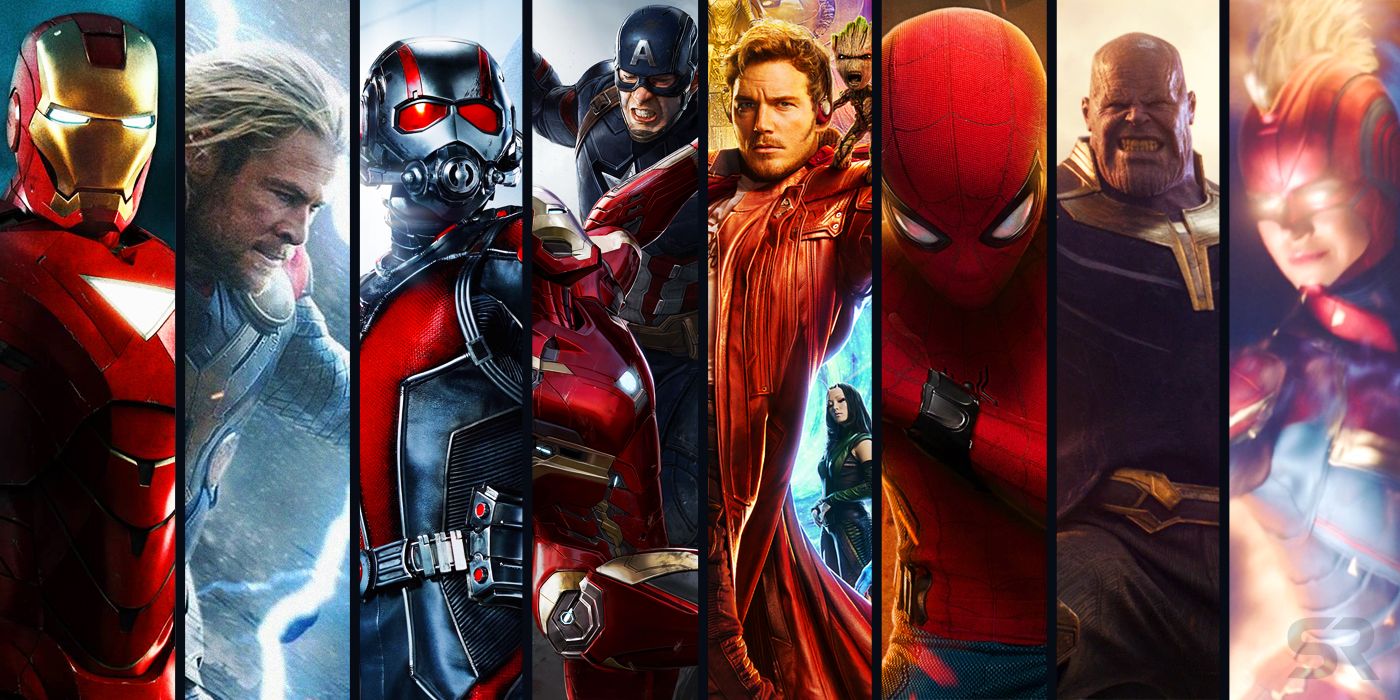
Here's our complete ranking of the MCU movies as Phase 4 begins in earnest. Marvel Studios has become the biggest force in Hollywood, earning $18.5 billion at the global box office in little over a decade and revolutionizing how studios approach blockbuster franchises. And while there's a litany of reasons why, one of the most fundamental is that their films are, for the most part, really good.
It's not that long ago that good superhero movies were exceptions that proved the rule about comic book movies, and even those shining examples - Superman: The Movie, Batman 1989 - eventually gave way to extinguished returns in sequels. Even after the triple-tap of Blade, X-Men and Spider-Man at the turn of the millennium gave the genre a sense legitimacy, the scales were still tipped against costumed heroes; the third entries of each of the series those movies formed were duds that ended the trilogies or led to reboots.
Marvel Studios brought a sense of consistency, almost by accident. When the company moved into film production, they lacked the rights to many of their major characters (before 2008, all Marvel movies had been licensed) so had to build icons out of then-B-list characters like Iron Man and Captain America. The focus had to be on the storytelling as much as spectacle, something that allowed audiences of all creeds - from die-hard comic fans to those discovering the likes of Thor for the first time - to embrace these characters. That it was all interconnected in one world where heroes eventually started crossing over only compounded the excitement.
Typically, the Marvel Cinematic Universe is broken down into its chronological narrative Phases: Phase 1 (six movies released 2008-2012) shows the formation of the original Avengers; Phase 2 (six movies released 2013-2015) the impact of superheroes on the world; and Phase 3 (ten movies released 2016-2019) circles the Infinity War against Thanos, along with introducing a new generation of heroes. This idea of narrative blocks has been at the core of the series since the very start, doubling as a way to hyper-focus audiences on what's important in the immediate future.
But it's also legitimate to take a look at them from a more critical perspective. These films do tell a narrative tapestry, but each one needs to work on its own. And, while the overall quality is uniformly high (few are out-right bad, and most are at least above-average), MCU movies can be broken into clear strata of quality, ranging from the sure-fire classics to misfires.
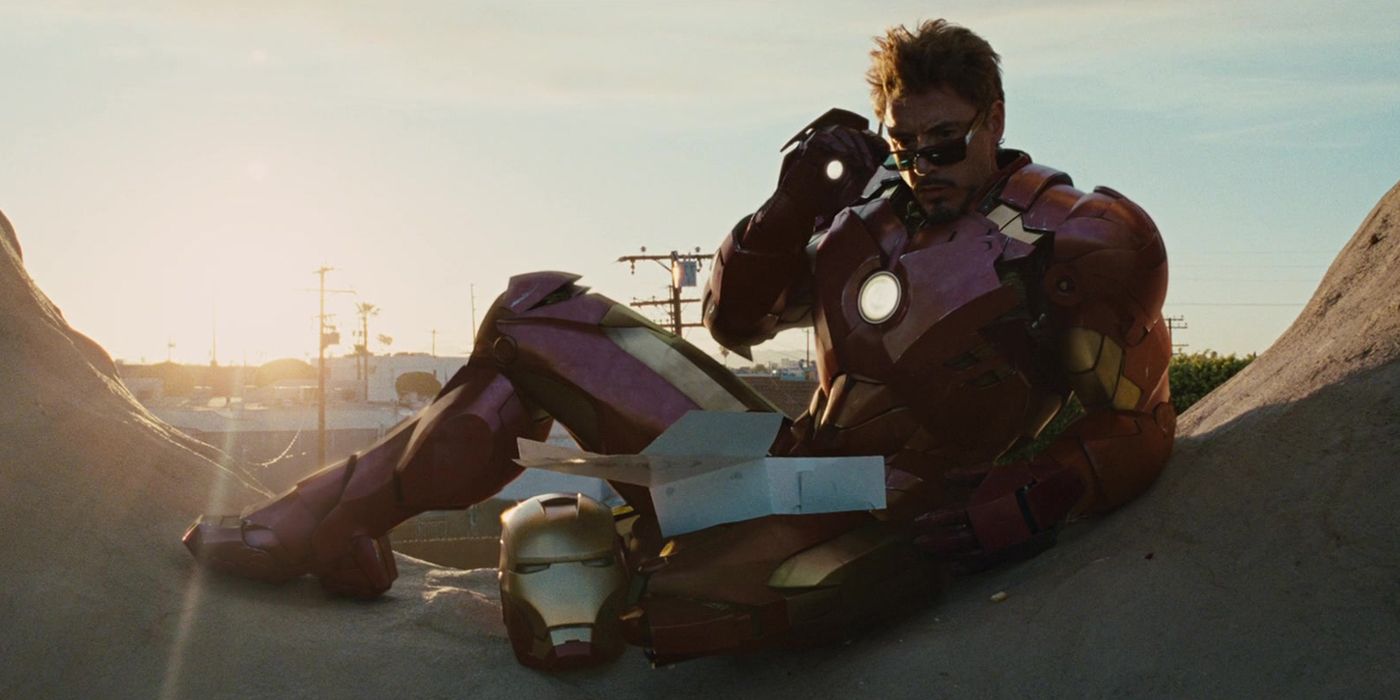
All of Phase 1 displays signs of a studio struggling to find its edge, but nowhere do you feel the strain of the shared universe as much as with Iron Man 2. Primarily, Jon Favreau's sequel seems to exist to move Tony Stark backwards from where he was left by the two post-credits scenes of Iron Man and The Incredible Hulk - The Avengers plan changed and having Stark at the forefront of the team was no longer the starting status quo - which requires a lot of confused setup for the future, none of it very interesting. But if you strip out the big picture wheel-spinning (which included not only Avengers but nods to Black Panther, Captain America and Namor), then it's not got much to offer besides.
It's really a half-dozen different stories all pulling in different directions. Fury and S.H.I.E.L.D., Black Widow, Whiplash, War Machine, Justin Hammer and Pepper and Stark Industries all have their own subplots alongside Tony's demon in an arc reactor plot, and they're so disconnected that at one point Fury has to put the hero under house arrest so he can unlock enough power to get to the boss fight. So much of what made the first film work is undone, with confidence in the characters making way for repeated winking - Don Cheadle's first line is "I'm here, deal with it", Coulson draws attention to what may or may not be a prototype Captain America shield - and the distinct feel replaced with a visual style that jumps between generic late-2000s blockbuster and Bay-esque militaristic fetishism (and leery camera).
Robert Downey, Jr. and co. anchor the whole thing well, the Iron Man design and implementation is still amazing, and the goals are admirable enough, which is enough to make it passable, but it still pales compared to the rest.
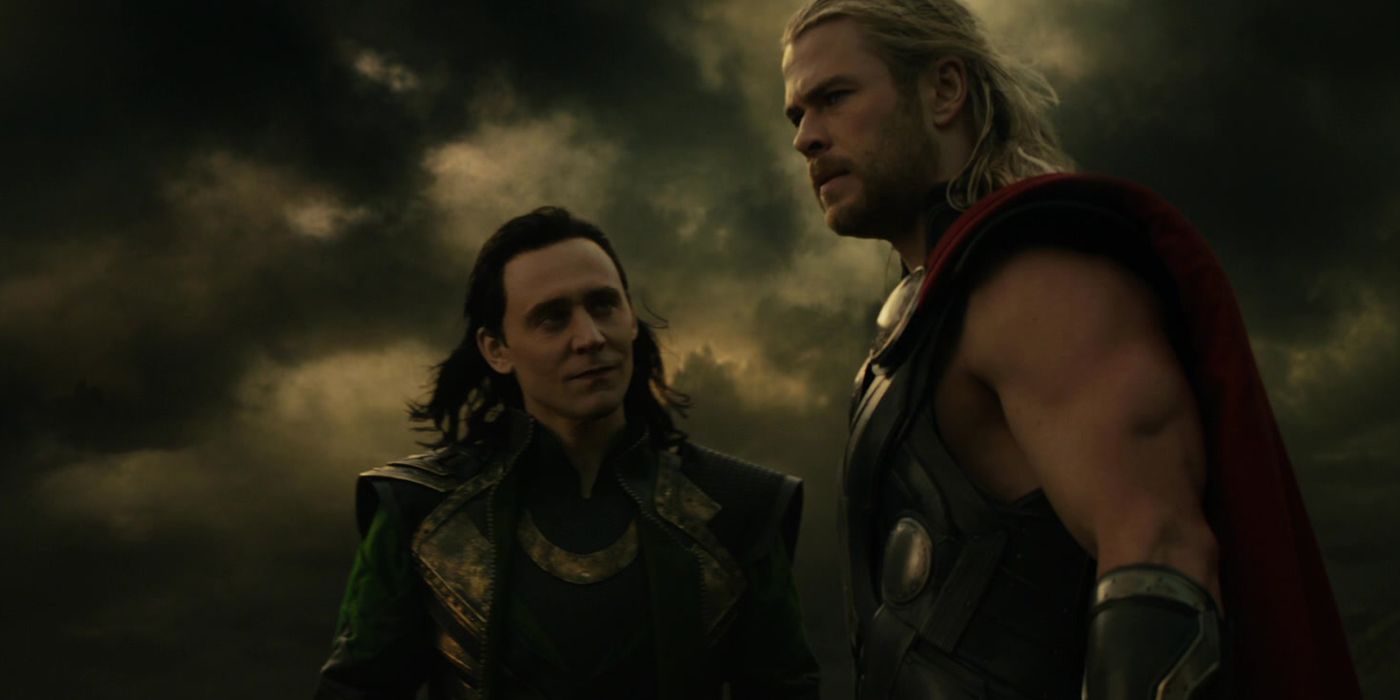
While it's often cited as an out-and-out bad film, Thor: The Dark World's real problem is that it's bland. The story is - like other low-ranking MCU sequels - multiple different threads all undernourished. The tone never embraces the full-on Kirby cosmic side to the extent the movie thinks yet neither passes as a knockabout comedy either. And there's so little ingenuity that its finale where all of reality hangs in the balance is set in one square at the University of Greenwich
Its relation (read: disregard) of the past is a particular problem. Alan Taylor took the broody, high-contrast style of Kenneth Branagh's original and replaced it with clean CGI, expanding Asgard in a superficial way that comes across as cheap Star Wars; and if that's what it was going for, the inconsistent story flow, set blocking and editing are more Attack of the Clones than The Empire Strikes Back. The director was allegedly picked to apply a Game of Thrones style to Marvel's mythic franchise, but there's no verve here and just a couple of bar scenes to pay lip service. Even the once good stuff doesn't really work; Anthony Hopkins' Odin performance is shocking and while Hiddleston is still fun as Loki, his arc and weird betrayal fake-out on Svartalfheim is amateurishly written. Later efforts from Taylor - equally unimaginative Terminator Genisys and Game of Thrones' dire "Beyond the Wall" reveal him as the likely core issue here.
What Thor: The Dark World does mark is the point where Marvel bias began to take hold. Thanks to the success of The Avengers and promise of growing inter-connectivity (this was the first movie to explicitly confirm the Infinity Stones), there was a lot of goodwill directed at Thor 2 upon release that feels incredibly in the moment and oblivious to its many flaws.
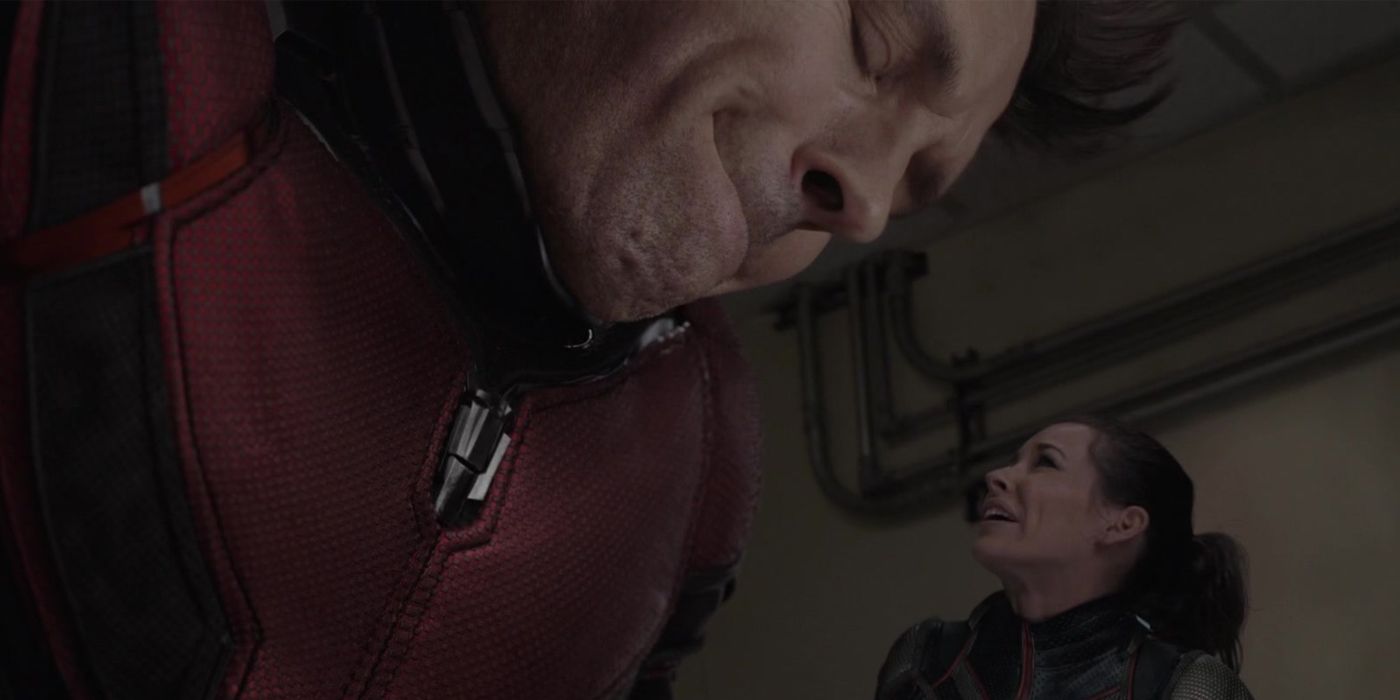
Ant-Man and the Wasp is the Marvel movie everybody who dislikes the MCU sight-unseen thinks Marvel movies are. It's an unimaginative stringing together of multiple random plot strands that never fully pay off (the third act involves six different sets of characters and yet they barely connect up), instead repeatedly falling back on the charisma of its leads for quick laughs. The result is the most out-and-out boring entry in the series, one that does very little with its characters and is instantly forgettable.
With the production issues that restricted Ant-Man in the past and a cast family well-established, this could have been a real step up. It wants to be the Honey, I Shrunk The Kids family comedy of the MCU, yet Peyton Reed all-too-often falls back on formula meaning ideas are repeatedly left hanging: most applications of the Pym Particle size-changing are variants of "small thing becomes big" or "big things become small", and when things are a bit different, there's no story purpose (Scott Lang shrinks to the size of a child in a high school and nothing comes of it). It plays like a superhero movie of the 1990s, and not in an intentional way; at one point, the villain calls in motorbikes like he's Mr. Freeze trotting out another piece of plastic merchandise.
Viewed in the context of Avengers: Infinity War, the film weakens further. Far from the palette cleanser promised, Ant-Man and the Wasp is lacking any substance at all, with the only moment that really captivates being the post-credits scenes that show the effects of Thanos' snap. When the most exciting moment of a film is a reminder that a previous, better film happened earlier that summer, you know something's gone wrong.
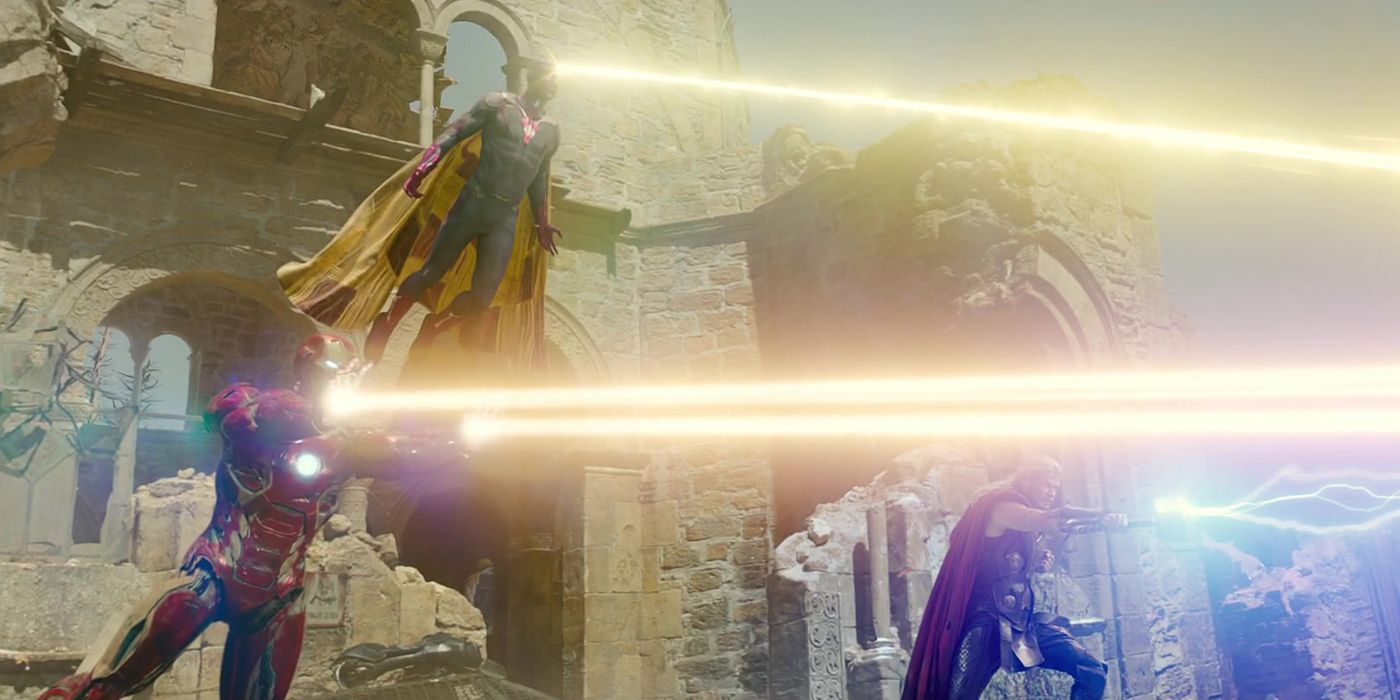
Avengers: Age of Ultron remains the biggest disappointment in the MCU. It was admittedly the most hyped entry up until that point also, carrying the weight of the 2012 original and the many excellent standalones since, but that doesn't make the fall any less painful. Whereas with most Marvel films you can at least understand what the intent was, here many ideas feel misguided; this was positioned as Whedon's Empire Strikes Back (bigger, deeper, darker) yet doesn't have the plot urgency or consequence to make the new themes, characters or threats have any proper impact, while the bolder moves it does make - the twins, Nat and Bruce's relationship - are interchangeably underserved and insulting.
It's easy to nitpick the narrative (Scarlet Witch's dream-visions are so ambiguous in intent it hurts) but that's only because the filmmaking is overall considerably weaker. While it's common to claim this is better directed than The Avengers, that's only on a superficial level; the original looks a little too like a TV show at points, sure, but its sequel doesn't offer much more beyond a more experienced CGI team with its considerably weaker script. What really stands out is the editing - scenes have no placement and most are cut down to the point big moments don’t land because they have no setup or breathing room. All this together leaves a disjointed experience, one all the positive elements - Vision (especially his origin), the core three, Andy Serkis, the Hulkbuster fight - are struggling to combat.
One the one hand, Avengers: Age of Ultron is very much the result of the infamous Marvel Creative Committee, who by most accounts were meddling with the film's direction to a damaging degree. On the other, many of its missteps have come to define the MCU going forward: comedy undercutting sincerity (see: Ultron's "children" line); slow scenes filling in for genuine character development (see: Hawkeye's farmhouse); and a disregard for the continuity (see: the mid-credits scene with a totally new Infinity Gauntlet).
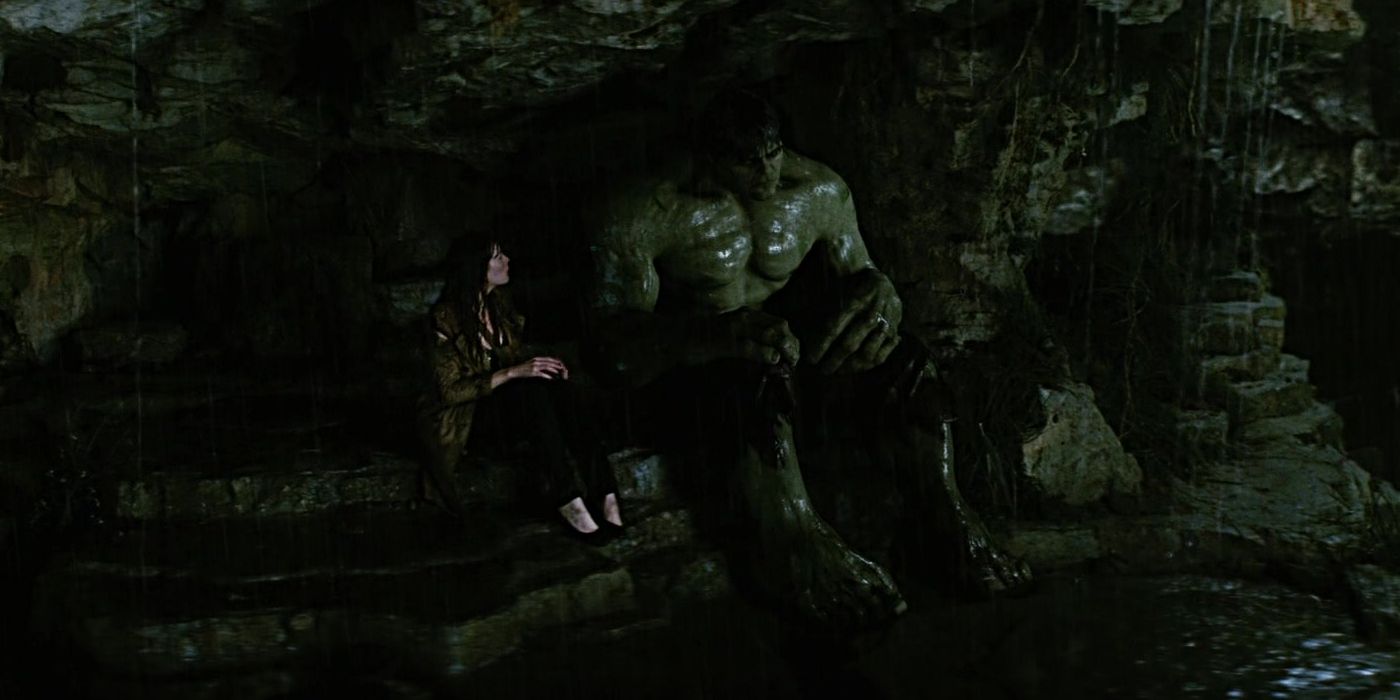
It's not the worst MCU film, but The Incredible Hulk is undoubtedly the black sheep. The only actor who's returned so far is William Hurt as a changed General Ross in Captain America: Civil War, and the primary event referenced later by Mark Ruffalo's Bruce Banner is a deleted opening scene (that thanks to a Captain America Easter egg is patently non-canon). Despite that, The Incredible Hulk is a solid piece of world-building. It's full of S.H.I.E.L.D. and Stark Industries Easter eggs that build on Iron Man, roots Hulk's origin in Captain America's super soldier serum three years ahead of Steve Rogers' debut, and directly builds to the Avengers with its ending and immediate credits scene (even if the idea of Iron Man recruiting a team against Hulk was canned).
All of that is great flavor to an otherwise generic 2008 blockbuster. Louis Leterrier's direction is off the shelf, with high contrast, sweaty night-time scenes style du jour, and its story is any werewolf narrative turned action movie. Edward Norton may have had grander plans in mind, but The Incredible Hulk is lacking anything unique.
The MCU connections actually highlight a lack of identity. For all the aforementioned setup, the movie is also trying to honor the 1970s TV series; Lou Ferrigno gets an ingratiating cameo, the theme tune plays throughout, and the ending appears to be almost indicating this is intended as a quasi-remake. Worse, it betrays one of the biggest rules of Marvel Studios: it doesn't explain what the Hulk is and how he could work in a wider context.
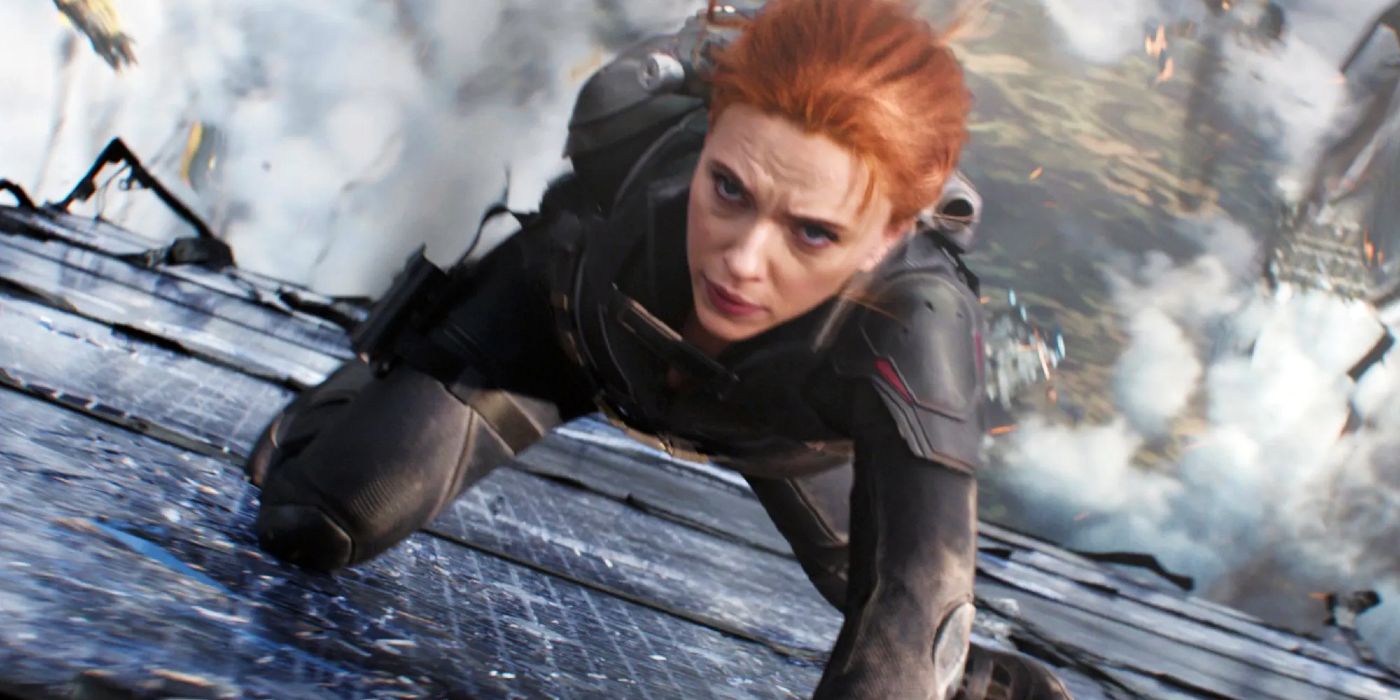
The decade-long wait for Scarlett Johannson to get her own solo movie, extended even further by the COVID-19 pandemic, wasn't worth it after all. Set directly proceeding the mainline events of Captain America: Civil War, Black Widow could have effectively released in the early stages of MCU Phase 3 - nestled between Doctor Strange and Guardians of the Galaxy Vol. 2, perhaps - and been entirely unaltered as a movie or experience. But the problems with the Phase 4 starter as a movie aren't related to it coming after the outer-space death of its protagonist of Avengers: Endgame, but are more rooted in its uncharacteristically poor filmmaking.
The story at Black Widow's heart, resolving Nat's past with the Red Room (as well as nods towards the Winter Soldier and her stint with Hawkeye in Budapest) by introducing her former "family" is expansive on paper, and for the first hour or so director Cate Shortland tees up a solid espionage thriller - the 1995-set opening and Nirvarna-cover-scored opening credits are The Americans meets Bond. But a mixture of gross miscasting (Ray Winstone as uber-villain Dreykov), contrived narrative mechanics (a plan is detailed in repeated flashbacks after its impact has passed relevancy) and general choppy editing undo the third act and leave a movie without a strong throughline or much action excitement. Even the aforementioned cultural touchstones become trite, with Moonraker getting an explicit callout and nods to Terminator 2 and Point Break so unsubtle they defy classification as homage.
It's especially disappointing for Johannson given the film plays it as Nat's final outing; while Black Widow is the lead, her character exists in timeline-mandated stasis allowing little real development. There's few dangling threads for her remaining, but neither are new layers uncovered. Even the future prospect of the memorable supporting additions - Florence Pugh's Yelena and David Harbour's Alexi - is weakened by neither feeling as prominent as they should.
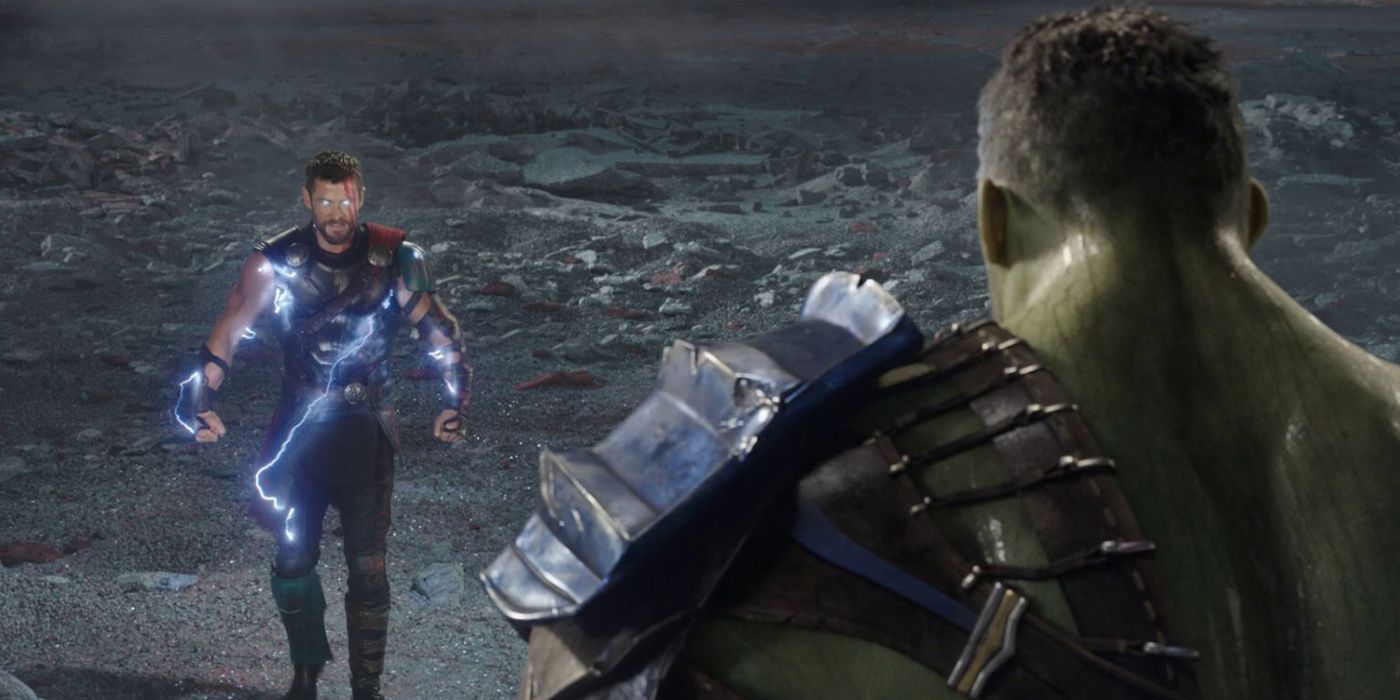
Thor: Ragnarok is the epitome of Marvel fun. It's an entertaining but flippant movie, one that prioritizes in-the-moment laughs over anything of greater weight; its subtext - how colonizers hide their dark pasts - is given brief mention before being relegated to background references. That is fine enough as mid-tier entertainment, but it can't help but feel a little lacking considering where the MCU had reached at this point.
Comedy is Thor: Ragnarok's best and worst quality. Being from Taika Waititi, the jokes have slightly more edge than standard Marvel and set the tone differently, but it's a shame so much improv led to rather static scene blocking and unrefined editing. What's really lacking from the director, though, is his trademark balance of emotion with his comedy: both What We Do In The Shadows and Hunt For The Wilderpeople used their wit to accentuate tragedy, but none of that's here. In fact, Thor: Ragnarok actively bypasses letting sadness sink in: Odin's death was reshot to be blandly spiritual after it made test audiences feel too sorry for him, and the loss of Asgard is undercut by both a lack of connection with its people and a Korg joke immediately after.
With all that said, there's plenty that works. Both Thor and Hulk are well-defined enough at this point to thrive in this new environment and, while most new characters are a little exasperating (see: Jeff Goldblum's Grandmaster), Valkyrie is a fully-rounded delight. The less-improv heavy moments bring that Kirby style to the fore without much resistance. It's just hard to not want something a little more balanced given how impactful it feigns to be.
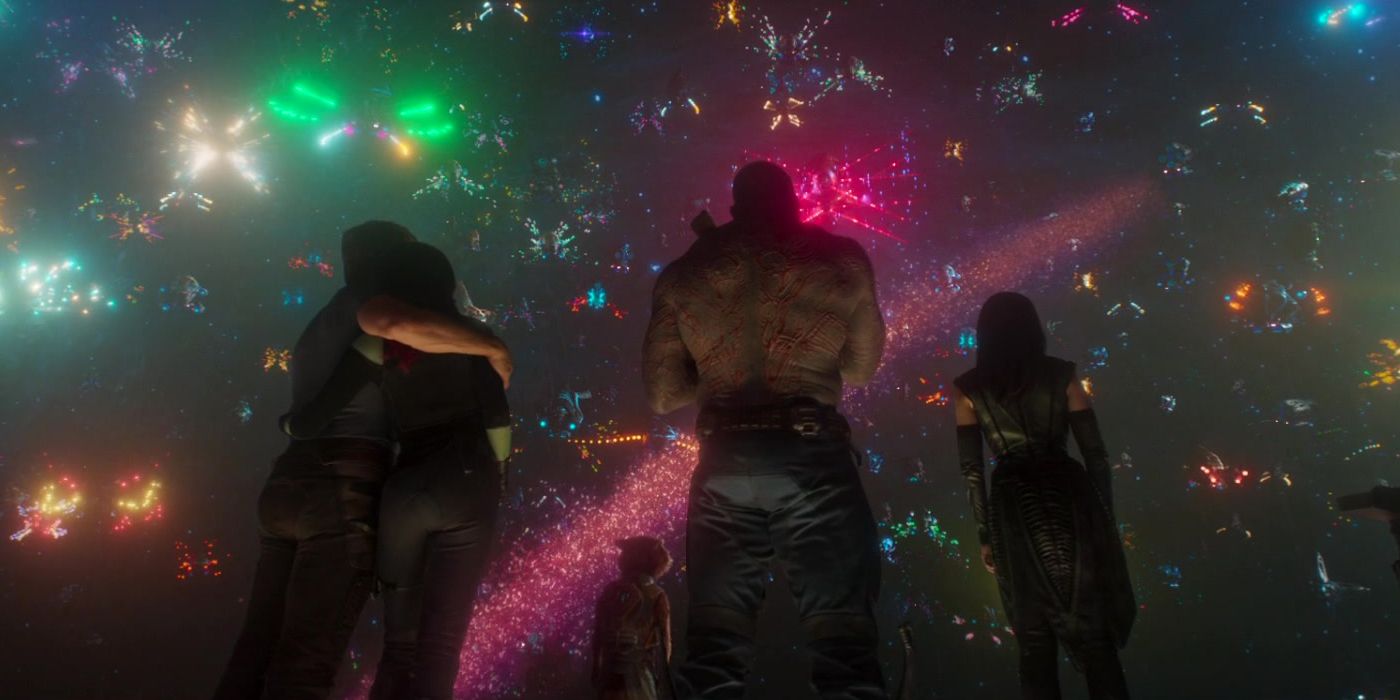
Guardians of the Galaxy Vol. 2 has a lot going for it. It looks absolutely incredible and there's a cast of likable, offbeat heroes to provide a string of great moments. It's just a shame the movie doesn't have a proper story. The movie begins with the team on the run from Sovereign, then they're saved by Ego, then Ego reveals he's bad and they have to stop him. That's pretty much it, and it leaves a film with plenty of style but no momentum; once Ego arrives, everything grinds to a halt for 30 minutes where there's no direct threat (something that makes Hawkeye's farmhouse look positively riveting). It highlights the problem Marvel has with first sequels, wanting pure character development but not knowing how to realize that beyond a string of scenes where characters explain how they feel.
If you break it down, on paper Guardians 2 is about fathers absent and adoptive, and the nature versus nurture debate. Unfortunately, while plenty of sides to this are raised - every single character has a part to play in the theme, one way or another - it never comes together to be anything more than individual. There's a sense Baby Groot was supposed to be the uniting aspect given his hugs at the end, but his role for most of the film is that of comic relief.
As already mentioned, the characters keep James Gunn's head above water. Star-Lord gets a payoff to his backstory that honors a lot of seeds in the first movie, although Rocket comes across the best by far, his personality painfully laid bare without having to lean too heavily on the whole scientifically-altered raccoon thing, and gets the fair share of great moments; were it better set up "I've lost too many friends today" would be an all-timer.
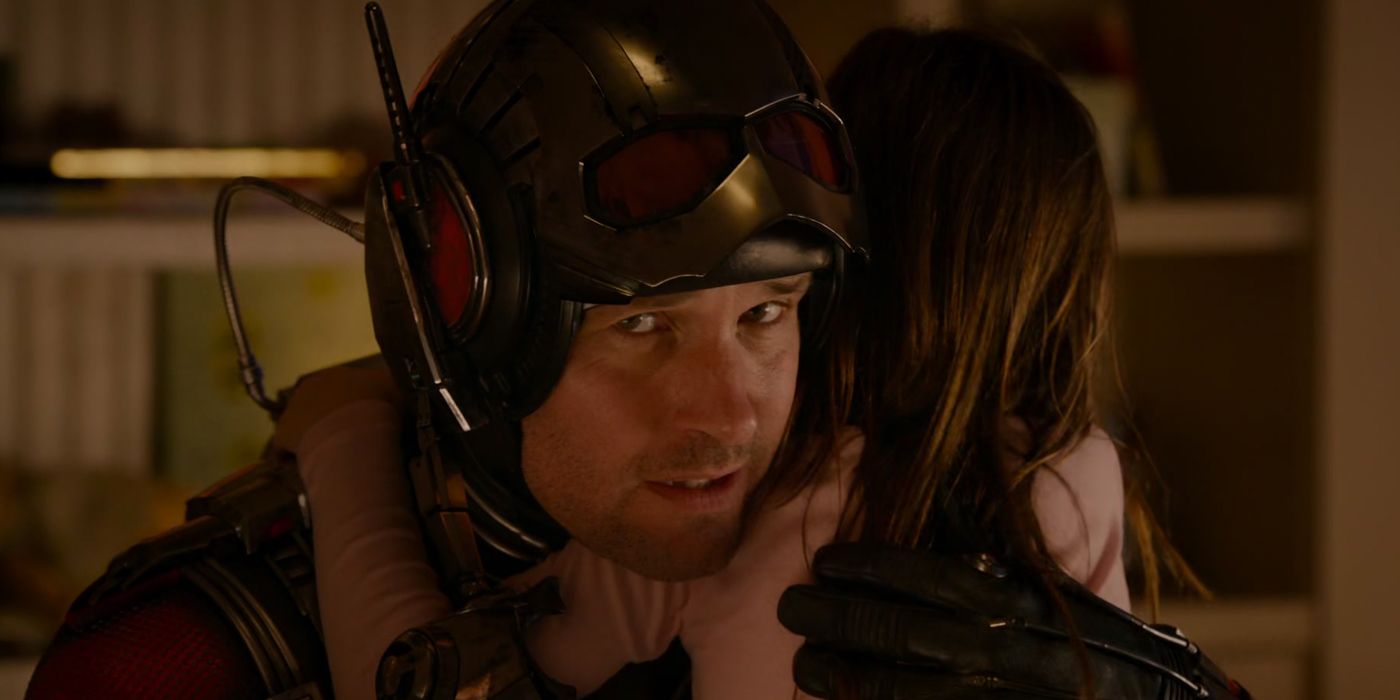
Ant-Man was the first in a new type of Marvel origin film. Here was a character becoming a superhero in a world where the Avengers already exist, where namedrops and cameos were de rigor, and the formula was down to a tee. But this was also a movie where the production limitations (Edgar Wright was infamously fired three months before production began, replaced by Peyton Reed) and the high hit-rate of said formula made for safe choices. The result is actually the median Marvel film, overall competent but with little ambition, and where the character would only truly shine when part of the wider ensemble.
What Ant-Man gets unavoidably right is the casting. It's a shame we never got an in-his-prime Hank Pym, but Paul Rudd as Scott Lang is an effective twist on the typical Marvel hero (this one is a real criminal, no questions) and Michaels Douglas and Pena add edge as aware mentor and hyperactive buddy respectively. There's also a large, affable supporting cast (Bobby Cannavale as an upending of the step-father is an underrated highlight) that take audiences through the rather standard story and making a more overtly comedic movie pop.
It's one the superhero side where Ant-Man struggles. The action, in particular, is a major let-down, with a constant uncertainty in how to shoot the micro-sequences. Are they told from Scott's shrunken down perspective or a full-size human? With minimal pre-production, Peyton Reed doesn't have an answer so goes for an uneasy blend of the two, which is disorienting and sometimes interesting, yet never that innovative.
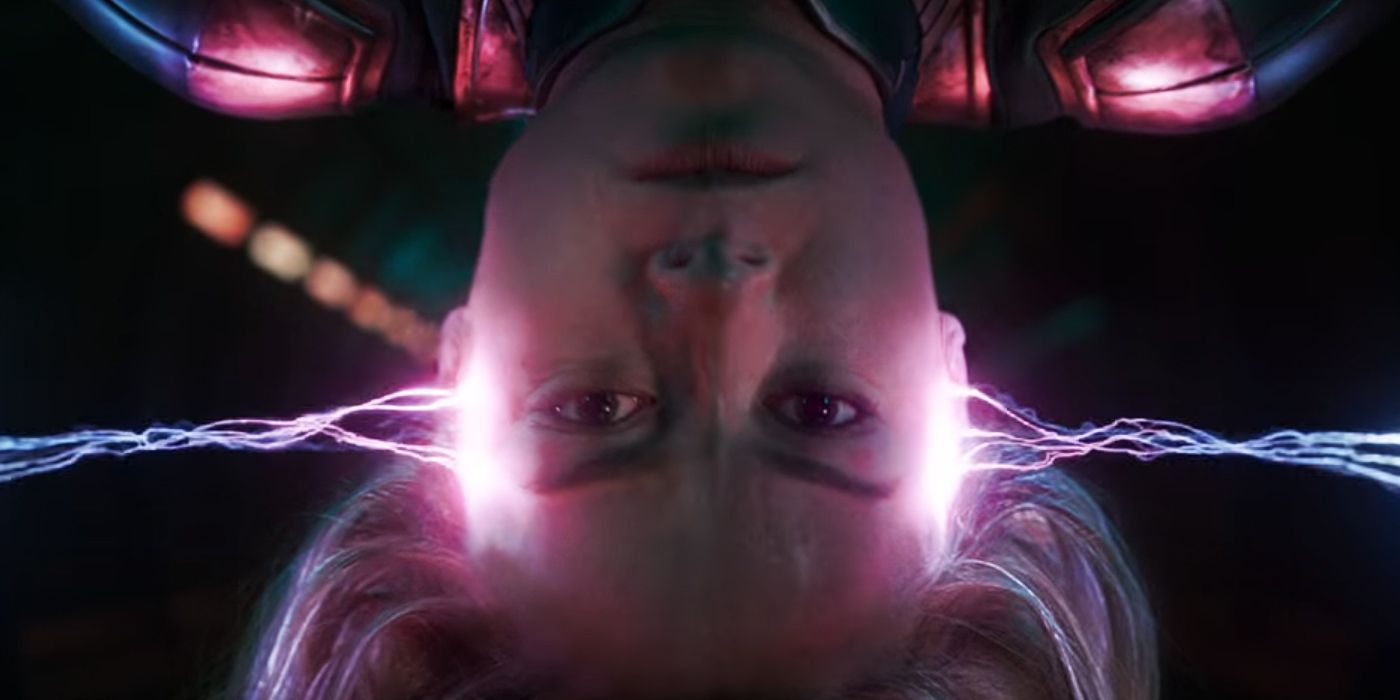
Unlike most MCU movies where there's a degree of consistency to the quality throughout, Captain Marvel is the one that varies the most. Some moments and long stretches of story are very strong - anything involving the Skrulls and their true purpose is fascinating - yet many decisions have more mixed reactions.
It's all rooted in a welcome, non-linear change-up to the formula; Brie Larson enters as Kree Starforce member Vers and only gradually uncovers her past as Carol Danvers, eventually choosing the hero persona entirely of her own accord. It's strong messaging, having the first solo female MCU hero emerge from a place of external restrictions to define herself, but also leads to unclear audience perspective - even at the end, viewer and star aren't on the same page - and turbulent narrative. Not to mention some classic concerns aren't adjusted; villain Yon-Rogg who earlier warned humor was a distraction is beaten in a gag beat.
Operating as the MCU's first lore-heavy prequel, Captain Marvel does a good job of expanding the world. 1990s period details are mostly background (bar specific music choices), and the Marvel references are mostly organic and expand known ideas without contradicting (just don't ask Nick Fury how he lost his eye or where the name Avengers came from). And, of course, with clear connections to Avengers: Endgame (which Larson shot first), it exemplifies origin stories as dry runs for bigger adventures; Brie Larson is more Hemsworth than Evans (strong, promising, not fully there yet) but it doesn't matter because this functions as just one piece of a whole.
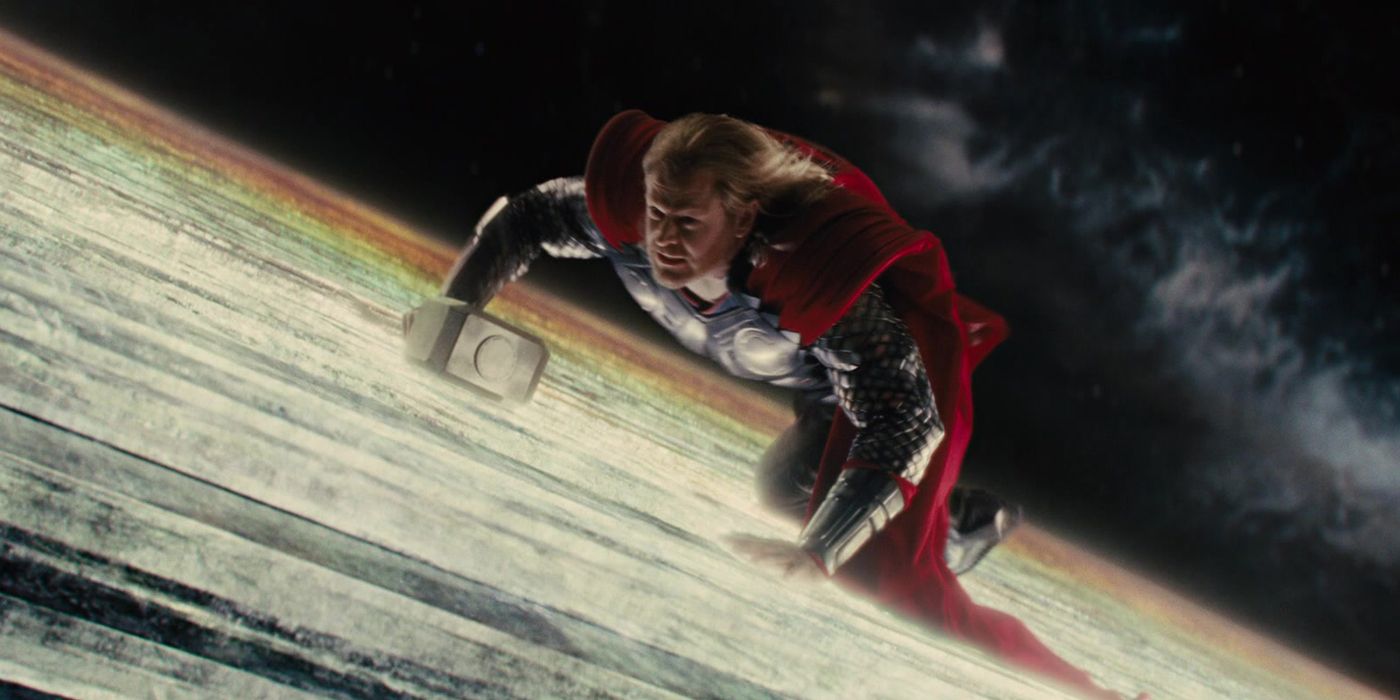
For a movie that every subsequent outing for the character seems to have been trying to somehow "correct", Thor really is a forgotten MCU hit. The Dark World attempted to go more grounded, Ragnarok more all-out comedy, but they miss how Kenneth Branagh pretty much nailed the balance between both first time out. The story mixes the fish-out-of-water comedy with faux-Shakespearean drama (the plot as much as the dialogue is rooted in classical storytelling) well, the filmmaking choices (dark-lit sets and dutch angles) accentuate the otherworldly feel, and it was overall the most earnest embracing of comic weirdness up to that point.
Chris Hemsworth isn't as out-of-the-gate perfect as Thor compared to Evans' Cap or RDJ's Tony Stark, but the sillier Earth-side of the story allows him to ease into the role. On the other side, Tom Hiddleston is a revelation as Loki, who's never been more complicated than here, and the supporting cast like Anthony Hopkins as Odin is inspired. There's no specific weak aspect, more a general sense of good-not-great; Jane Foster is a solid love interest but underserved, the same with the Warrior's Three.
Thor is an overall affable movie, balancing big world building for the franchise and universe (the "magic as science" descriptive is non-aggressively pushed) with more internal character debates. It was only by Avengers: Infinity War where Thor truly became a worthy MCU lead, but you feel that if the ideas raised by his first movie had been followed through on, he'd have reached that point a lot sooner.
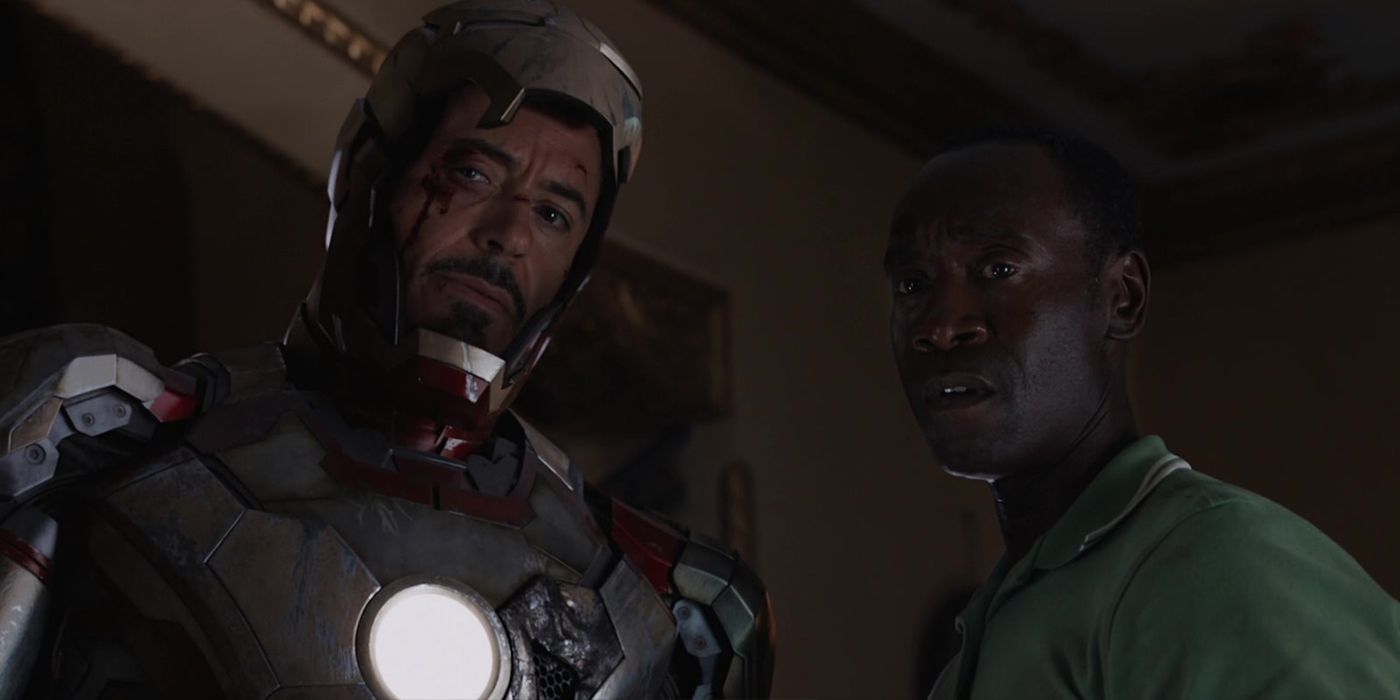
Iron Man 3 is far and away the most underrated movie in the MCU. Coming off The Avengers and returning straight to standalone stories with the odd nod to Thor and Captain America was a tricky ask, but Marvel went for broke with what will likely be the last Robert Downey, Jr-led outing. It's a Shane Black movie through and through, from the stylish ephemera - framing narration, Christmas setting - to more fundamental aspects - the wry humor, the focus on buddy-cop escapades - and doesn't fall into many of the Marvel formula pitfalls that later movies would (the Whedon influence was yet to sink in). Plainly, Iron Man 3 has one of the most distinct personalities in the series (even more so than Guardians of the Galaxy).
Much of the backlash rests at the feet of the Mandarin. The movie marketed itself on seeing Tony Stark showdown against a modern update of his archnemesis, and that's exactly what it delivered; just not in the way many were expecting; the Osama Bin-Laden channeling Mandarin was just an actor, the Eastern-influenced Ten Rings all part of a terrorist front by vengeful Western tech genius Aldrich Killian. But while that's not accurate to the comics, it is to the real world. Terrorism is a performance and the real threats to our society are at home, making the Mandarin as thematically rich as it is hilarious.
If Iron Man 3 has a villain problem, it's everything else. Maya Hansen was the secret big bad in earlier drafts but studio rewrites make her character-less, the Extremis soldiers are vague goons without any clear weaknesses, and while Killian being a suave rich guy is accurate to what the movie is spearing, it's doesn't make for an interesting final battle.
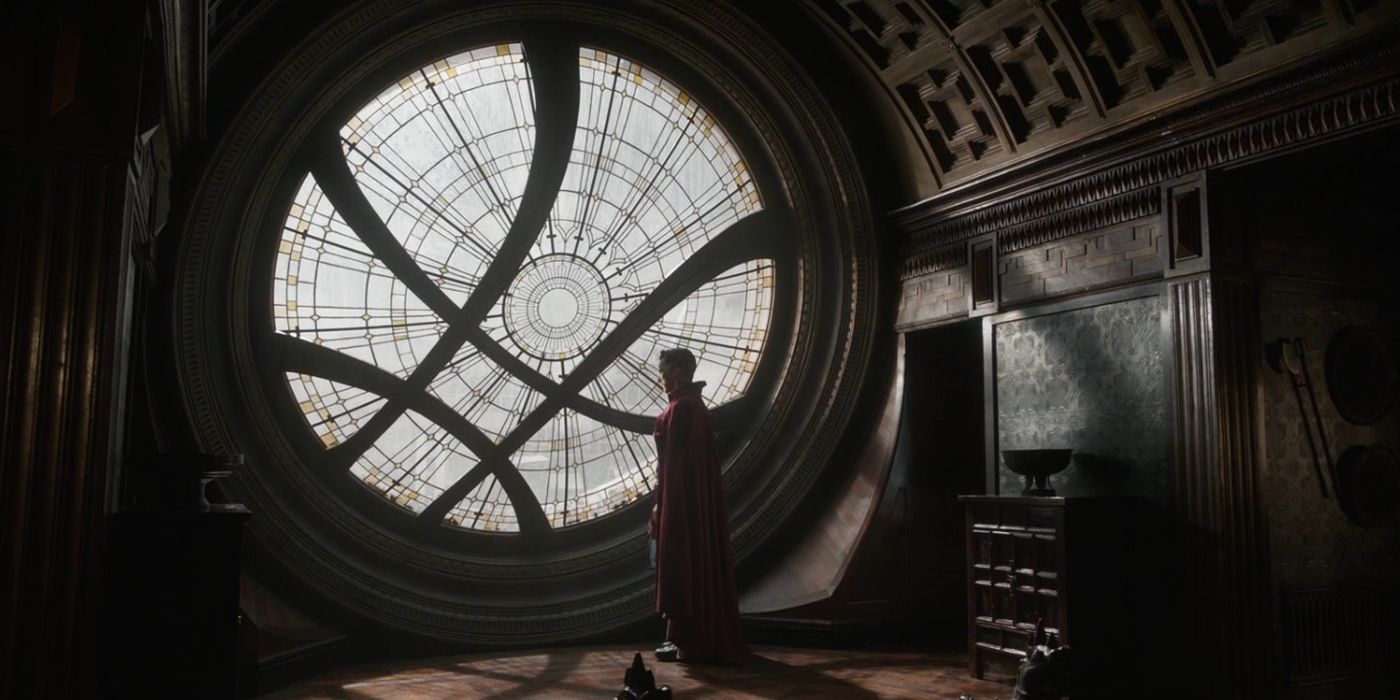
It's easy to be glib about Doctor Strange. An origin story for an arrogant, sarcastic, rich man with a goatee who suffers a life-changing injury but directly through that discovers new powers - on paper it transplants Iron Man's formula to Stephen Strange to a tee. Yet this is a wholly unique film that simply uses the tropes to tell a much more offbeat story than Marvel was used to. Benedict Cumberbatch is easy casting but gives his all, as do the often underutilized cast, while the humor that waylaid many Phase 3 movies is worked into the character beats more organically than most.
While this movie is often compared to Inception, the Christopher Nolan this Doctor Strange has most in common with is actually Interstellar: the idea that time is the true enemy and death the ultimate fear is a heady topic for a superhero blockbuster, yet it's one that Scott Derrickson takes to its natural conclusion with the Ancient One's reflective death and series high-mark "Dormammu, I have come to bargain."
Going from themes to visuals is where Doctor Strange loses itself a little. Derrickson certainly offers up some strikingly weird imagery, yet a lot of it is odder for the sake of it than having some greater visual purpose. Claims Doctor Strange was "like nothing you've ever seen" act like 2001: A Space Odyessy didn't do it better almost 50 years earlier. This problem is most evident in the action, which are rather flat chase scenes with impressive CGI grafted on them; only Marvel would have a sequence where characters must defend against reversing time and set it in a bland alley set.
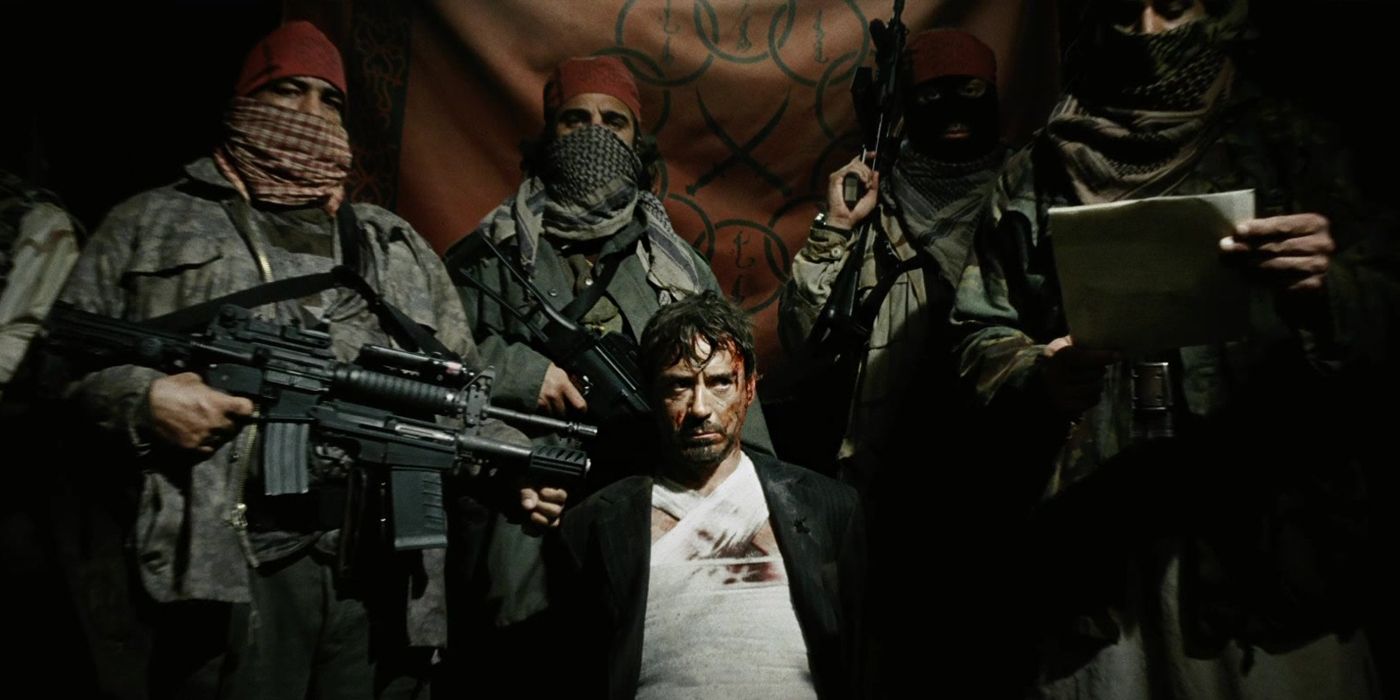
It's easy to heap a lot of importance on Iron Man for how it kickstarted the MCU, marking Marvel Studios out as a blockbuster force to be reckoned with and in its post-credits scene building directly to The Avengers. But all of that ignores that, at its arc reactor core, Iron Man is just a good movie.
At this point in time, critics were starting to question if superheroes were going out of vogue - the previous two years had dud third installments for trailblazing X-Men and Spider-Man franchises - only for 2008 to offer two rebukes. The Dark Knight got a lot of the spotlight for its high-end removal of all genre tropes in favor of a stripped back crime story (and indeed remains the superior film), but that doesn't mean Iron Man was by the numbers; it took the basic origin story playbook but subverted much of it. Robert Downey, Jr. is an off-base superhero protagonist, Jon Favreau gave his cast freedom to adlib, and in its final moments undoes the entire secret identity trope (something not even Spider-Man could maintain for more than one movie in the MCU).
What's so amazing about Iron Man is how so much of it holds up on a filmmaking level. The cinematography is clean, the CGI refined (the same can't be said of that year's Visual Effects Oscar winner The Curious Case of Benjamin Button), and even the pacing modern. Were this released today, audiences may question the lack of any fantastical elements, but they'd engage with it in much the same way.
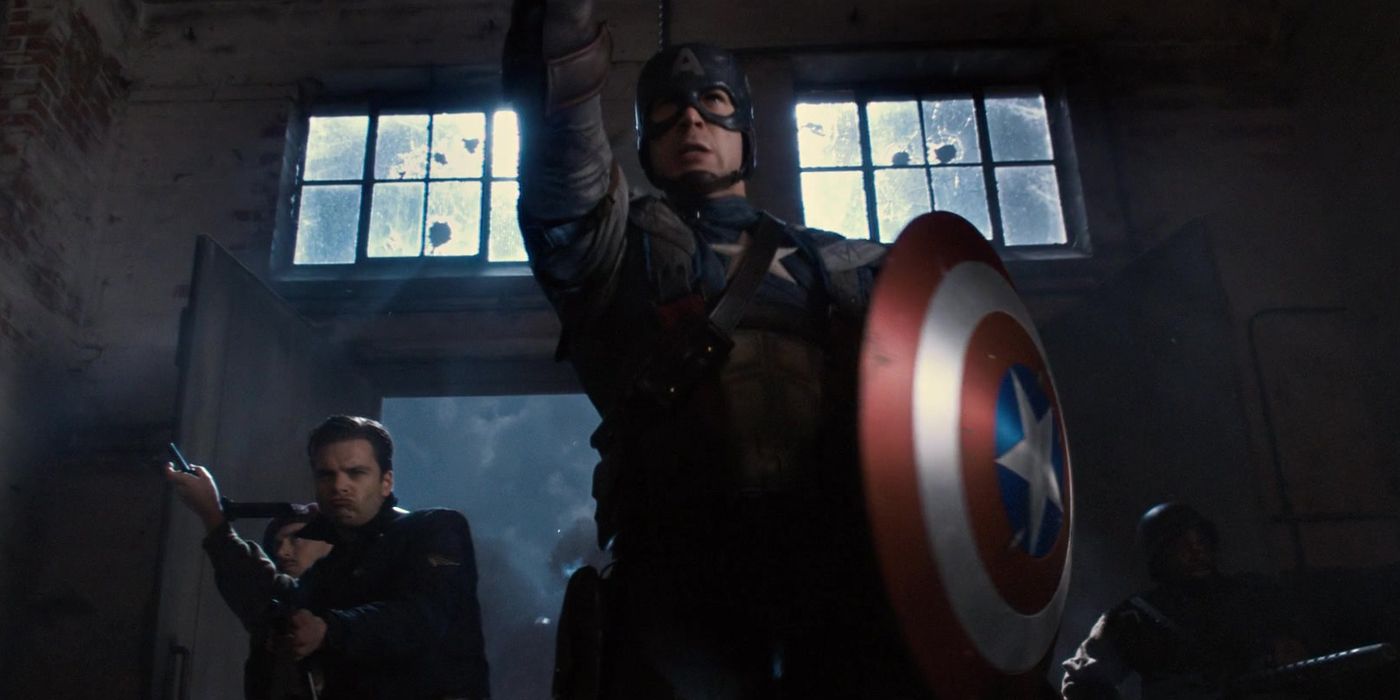
"I had a date." Few MCU moments have quite the same heartbreaking gravitas of Captain America: The First Avenger's final moments where the inescapable sacrifice of the man out of time comes crushingly real. That ending sequence is shared universe building done right, with an emotional payoff to the film's core themes beelining into a tantalizing bigger picture, yet it only works so well because of everything that came before.
The best MCU origin movies get to the core of their titular character, but with Captain America, Joe Johnston goes one better and thoroughly deconstructs who exactly this former propaganda piece is and makes a detailed case for why he's still relevant today. Whether it's being crushed by his song-and-dance number or betraying orders to become a true hero, the delineation of the Captain from his namesake country is so effortless. Much of that praise has to go to Chris Evans, who is such perfect casting as the Star-Spangled Man that he almost single-handedly pivoted Cap as the lead of the franchise in place of Iron Man (and comes across fairly convincingly as a weakling despite the shrunk CG body).
Above all, Captain America is an Indiana Jones-style adventure, a fantasy World War II romp with a visual style straight off the cover of a Boy's Own sci-fi collection. The Red Skull is a deliciously teased villain, the dancing-and-fighting montages captivating, and there's a greater foreknowledge of where the story will go - the filmmakers know Steve isn't making it out alive and Bucky's death is done with knowledge of the future. Captain America has far-and-away the best standalone Marvel series, and while his Russo-directed efforts are stylistically different, the core of the character and themes are all in The First Avenger.
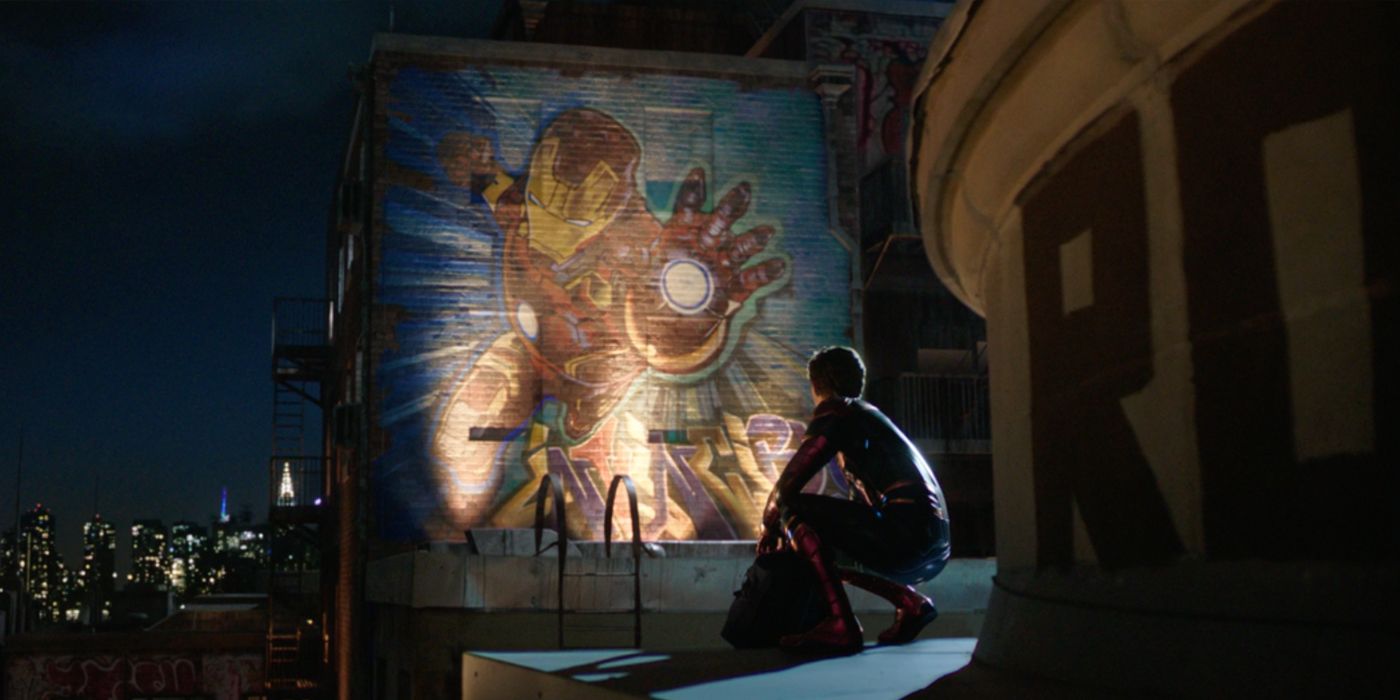
When Kevin Feige proclaimed Spider-Man: Far From Home the real end to Marvel's Phase 3, he made Jon Watts' sequel the fifth consecutive movie to be explicitly marketed on the hype for Thanos. That's a burden for a movie that is in the basic plot so isolated and whimsical in focus, but unlike some of the other solo films at the tail end of The Infinity Saga, Spidey handles this with grace. Like its predecessor, Far From Home balances being a high-school comedy, superhero actioner and MCU puzzle piece by having each part inform the other: Tony Stark's death doesn't just define Peter Parker's arc, it provides a reason for the most elaborate school trip in history and, in a slightly more roundabout way, the villain's scheme.
Like in Homecoming, the villain of Spider-Man: Far From Home is certainly the most interesting talking point. Marketing Jake Gyllenhaal's Mysterio as a hero may have fooled no one, but the multiverse distraction was worth it for his goofily grounded motivations and Ozymandias/Syndrome scheme, not to mention the mind-bending vision sequence. Quentin Beck is another example of Stark collateral damage, one who's descending into villainy out of rejection and in direct contrast to our hero.
Nevertheless, as with most Part 2s in the MCU, especially those that retain the same creative team, Spider-Man: Far From Home can't help but feel more disorganized than the first. There's bigger action, sure, but it's confusingly shot and consists mainly of the same CG-augmented web acrobatics (a shame when Tom Holland is such a proven physical performer). And for all Mysterio works, the film's rush to his big grin leaves behind skipped-over locations and character beats (Nick Fury's characterization is so off-kilter a universe-adjusting post-credits twist barely saves it). It's a good, often great film that relishes in its surprises. Hopefully, again, as with Homecoming, it'll be one to improve on rewatch.
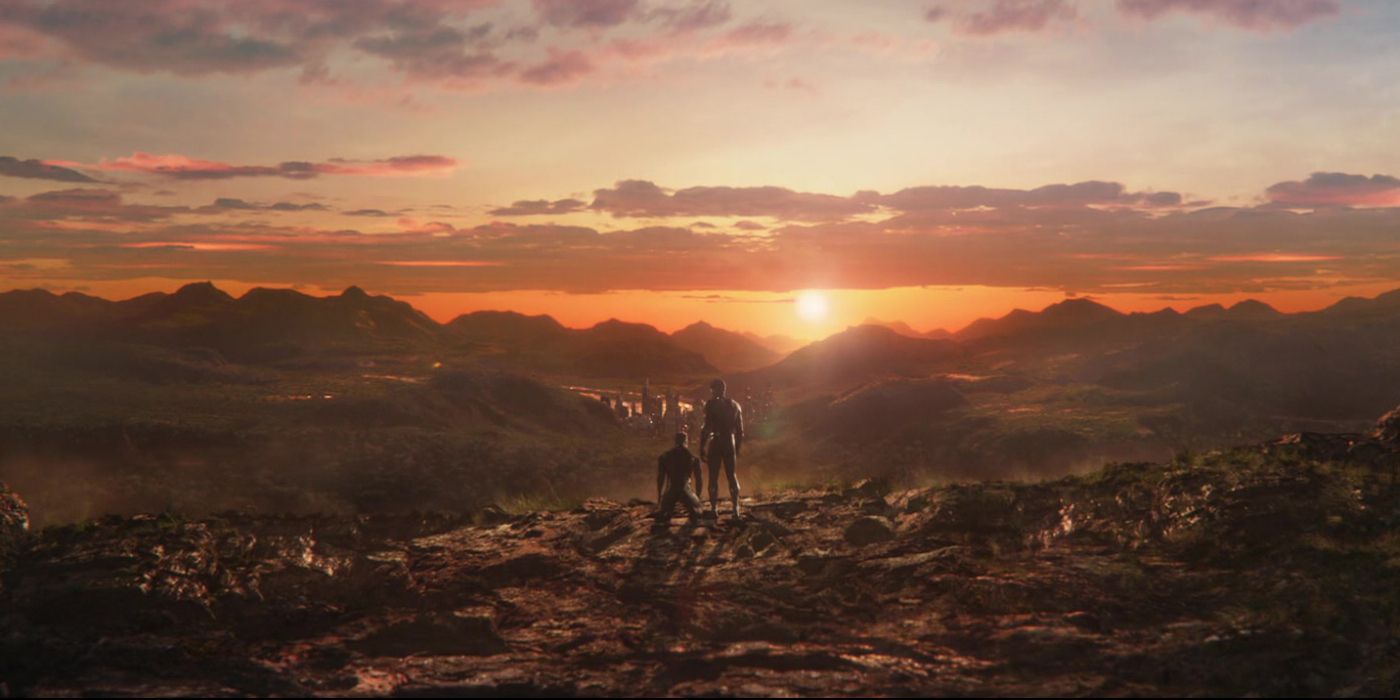
"Just because something works doesn't mean that it cannot be improved," Shuri says to T'Challa. She's talking about his Kimoyo Beads, but is very much summing up the creative drive of the film. Black Panther is how to do Marvel right while evolving it. It presents the character full-on, building on the Captain America: Civil War introduction and deconstructing the ideas that define him, but goes a step further than even The First Avenger and adds on proper social commentary.
Ryan Coogler proves himself like no other breakout director has in the MCU, crafting a story that at every turn is using the superhero genre to explore the ills of colonialism and question what we can do today to correct the mistakes of the past. It's rarely preachy or obvious, and builds to a rational conclusion in a tough manner. The chief stroke of brilliance is Killmonger. Marvel corrected their villain problem by developing them as if they were heroes, which for Erik means making him come from a logical place but then extend to an extreme level: Killmonger is right but his actions are wrong.
While the movie can't totally escape Marvel formula - jokes are hit-and-miss, while the scale of the final action scene feels mandated - the next-level world-building, seamlessly creating an afro-futurist land that feels truly real (bar the recurring street set), marks Black Panther out as something beyond its ilk (and more than worthy of its game-changing Oscar wins). Franchise connections are light, but that's only because that approach is the future of the franchise.
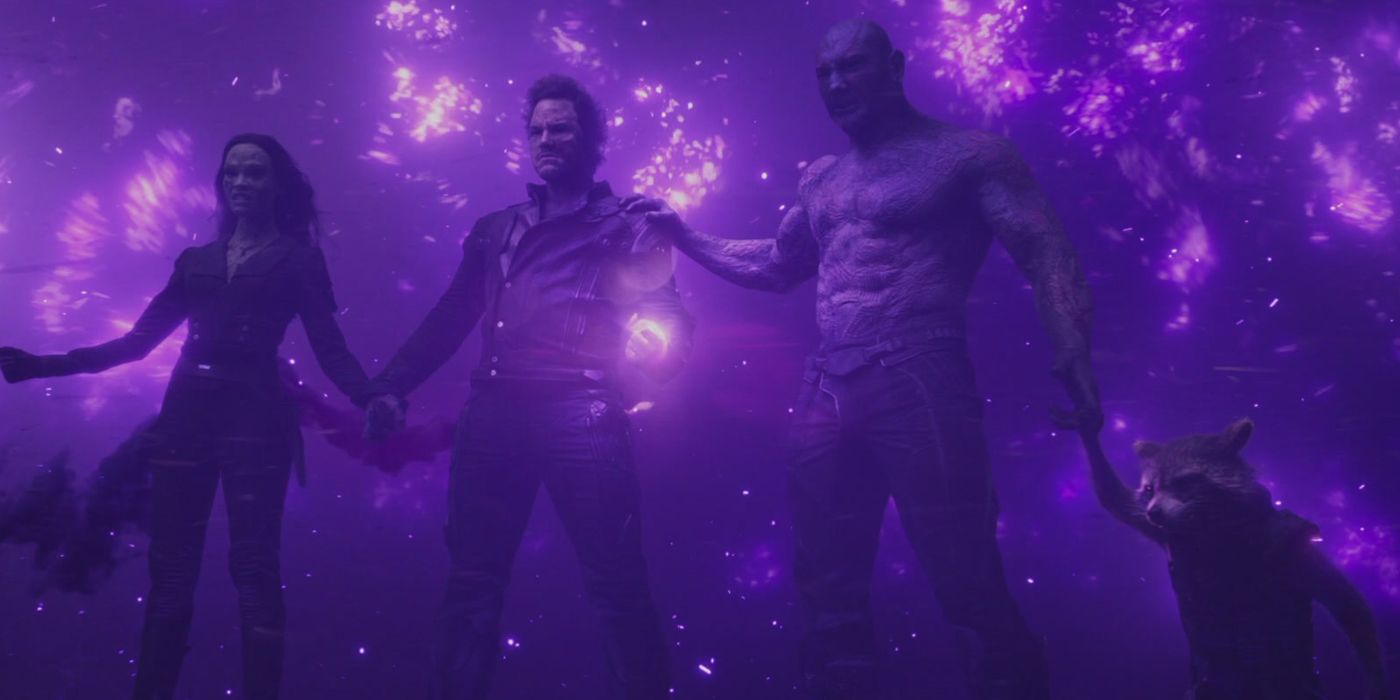
The narrative is that Guardians of the Galaxy was Marvel's biggest gamble thus far, trying to sell a talking raccoon and a walking tree to general audiences. That's true to a point, but it must be remembered that there was a point when a Norse God or World War II relic or robot suit named after a transition metal were similarly confounding to the mainstream; Marvel never had safe bets by nature of not having A-list characters. This reading does, however, highlight Guardians of the Galaxy's biggest strength - its swagger. From the moment Chris Pratt starts dancing to Redbone's "Come And Get Your Love" as the title fills the screen, this is an incredibly confident, blended riff on Marvel superhero and Star Wars sci-fi tropes that has no interest in whether you'd heard of them before SDCC 2012 or not.
Much of the credit rightly goes to James Gunn, who melds his personality sensibilities with that of the cosmic Marvel comics and the MCU without sacrificing much of any individual part. If Star Wars was a used future, this is a casually-zany future. Everything is weird, but when everything is weird, nothing is: the vibrancy is charm, not in-your-face spectacle; the stilted yet straight dialogue is making for comedy without undercutting the scale of the story.
Where the movie does struggle a little is in its plotting, with the mix of team-up and origin story formulas buckling around the second act; the Knowhere sequence slows the pace, drops exposition and then needs characters to act out of sorts to get towards the final act. This problem would return in the sequel, but it doesn't bring the movie down too much because of the effort put into making sure each character is defined and the MacGuffin has meaning way beyond purple whisps.
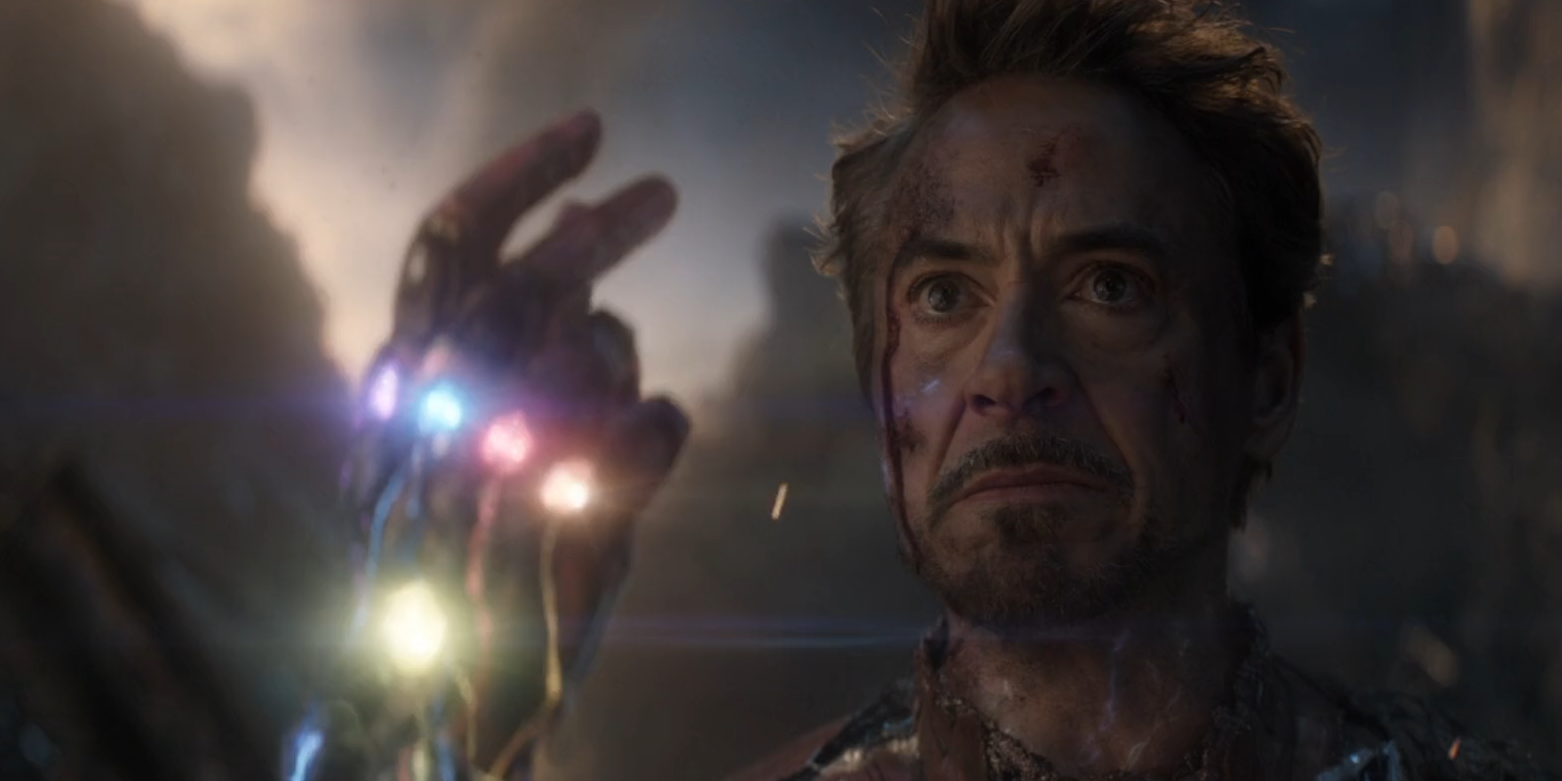
The MCU is greater than the sum of its parts, but if there was any one movie that best represented that sum, it would be Avengers: Endgame. It's the Marvel Cinematic Universe in microcosm, with all the good and bad that brings. It's big, it's bold, it's messy, it has a very confusing approach to micro-continuity, but it's ultimately incredibly character driven and delivers an emotional catharsis beyond what any solo movie could do.
Being the ending - at least as close to an ending as a movie with seven movies confirmed in development for the next few years can be - Avengers: Endgame has a massive advantage in when it comes to stakes; so much of the legwork has done before a single frame of new footage. But the Russo brothers do not slack. The opening and closing scenes of Endgame eclipse anything in Infinity War (yes, even the snap), and the in-between journey is so sprawling yet focused in intention that moment after moment hits. Fan service is laid on thick yet feels earned and rarely Tumblr-bait, there's no green screen flubs, and the ability to pull back from the jokes and let the darkest scenes land delivers what some previous films were missing.
But it's not perfect. Some of the choices made to get to the ending are rather perplexing, doubly so considering how they seem so opposite to how things were set up in Avengers: Infinity War, a movie written and filmed alongside it. And long-predicted story turns are just as lacking in plot logic as feared. This may be the worst movie to introduce someone to the MCU with, but it's the perfect one to express what's made it so great.
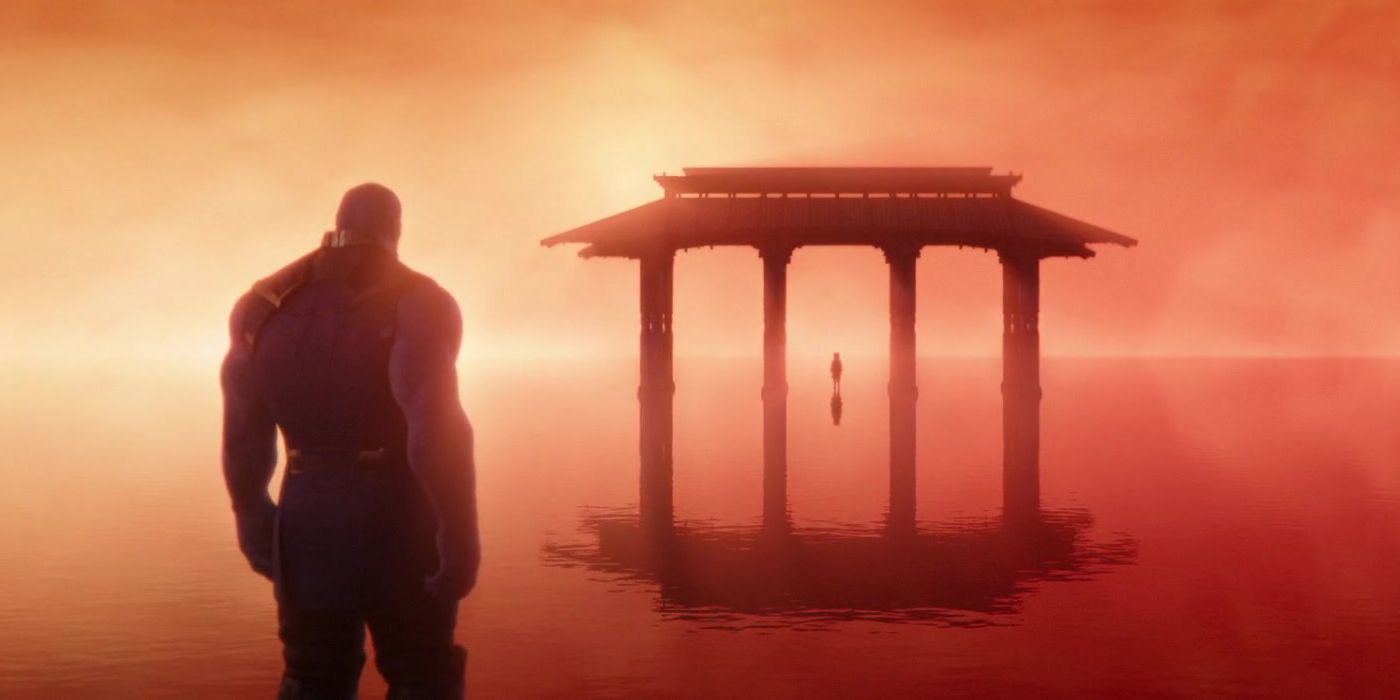
Sold as the culmination of the entire MCU (but really just Part 1 of 2 as Marvel always promised), Avengers: Infinity War is barely readable by any standard narrative means. It has two dozen heroes each with their own interlinked arcs, but even at 160 minutes long, the film can only develop them incrementally, with a handful getting anything approaching proper focus. It's certainly entertaining to see Bucky and Rocket live out a meme or Steve Rogers meet Groot, but the only way to really parse down its story is from the perspective of villain Thanos, which may be the Russo brothers smartest decision in the entire MCU.
In direct contrast to Killmonger (right motives, bad actions), Thanos is misguided to the bone, his plan horrific and means distressing. Wanting to destroy half of all life in the universe is utterly insane, but it's framed in something approaching a Campbellian hero's journey that makes the drive understandable, if not relatable. And that is why, even when he and Thor, the closest thing the film has to good protagonist, come face-to-face, the Mad Titan still wins: he is a force of pure will, who is able to collect the Infinity Stones because at every stage he's willing to do what none of the heroes are capable of.
Infinity War is a hard film to assess on its own merits considering its cliffhanger ending leaves everything up in the air ahead of Avengers: Endgame, but there's no denying the audacity of the mass decimation at the end (even if a return is oh-so-obvious). It's grim storytelling done on a scale only possible with blockbuster budgets and the sheer weight of what's to come. Avengers: Infinity War ignores so much of the set up (Thanos is a different being) but it works because it fundamentally understands the core of the Marvel universe is character.
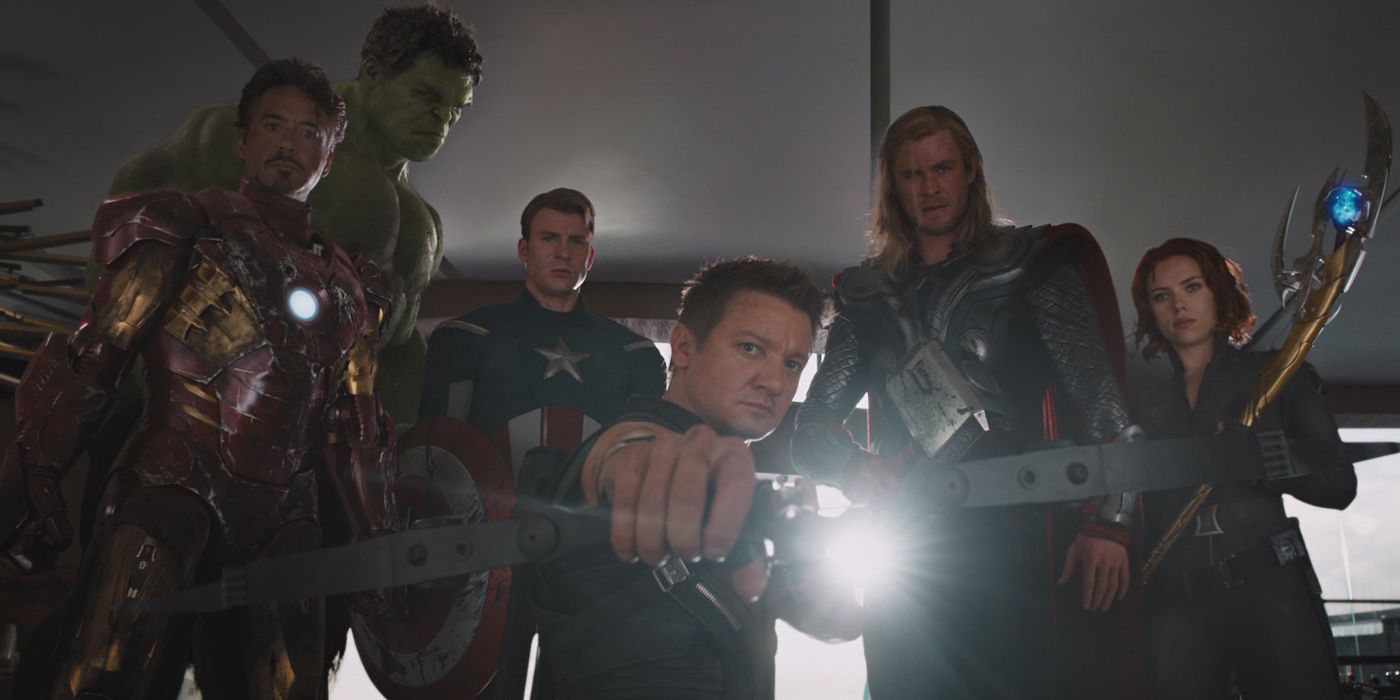
The Avengers is where the MCU truly became the mega-franchise it is today. Up until 2012, Marvel Studios had marked themselves out as being able to produce consistently "good" action movies with strong characters (Iron Man 2 notwithstanding) that challenged superhero norms of recognisability and marketability, but it was only with Joss Whedon's team-up they truly became "great". It released in May 2012, two months before highly anticipated conclusion The Dark Knight Rises, yet not only made more but ended up being the most influential. Many studios tried to build their own shared universes (none quite as successful) and Whedon's blockbuster style became the norm for this franchise and many more.
But The Avengers wasn't just bringing the characters together and riffing humorously on their differences. It could have been that sort of gimmicky movie, sure, and would have likely still passed $1 billion, but what really made it work was how energized and focused it was. There's not really a plot, more a chase for the magical MacGuffin, yet the character interactions provide a story backbone - in the first 40 minutes or so, every scene transition connects directly to the previous one - that remains tight. And that allows the movie to do more than bring heroes together: it analyzes the notion of a team-up in a mildly-meta way, responding to preempting critics and making the eventual group shot a triumph even if you'd not seen a single previous film.
Even then, not everything works - some of the earlier action sequences are very televisual, Hawkeye's entire arc is undone by a complete lack of setup - but those are overridden by the smart script (what seem like improv asides become emotive throughlines in stark contrast to Whedon's reshoots on Justice League) and an explosion into three-dimensional action. And while the base thrill of the Avengers coming together is now part and parcel of any random MCU film, it's been allowed to retain its special feeling by future films thanks to a careful honoring of its core ideas (and a movie-long tease of the purple alien behind it all).
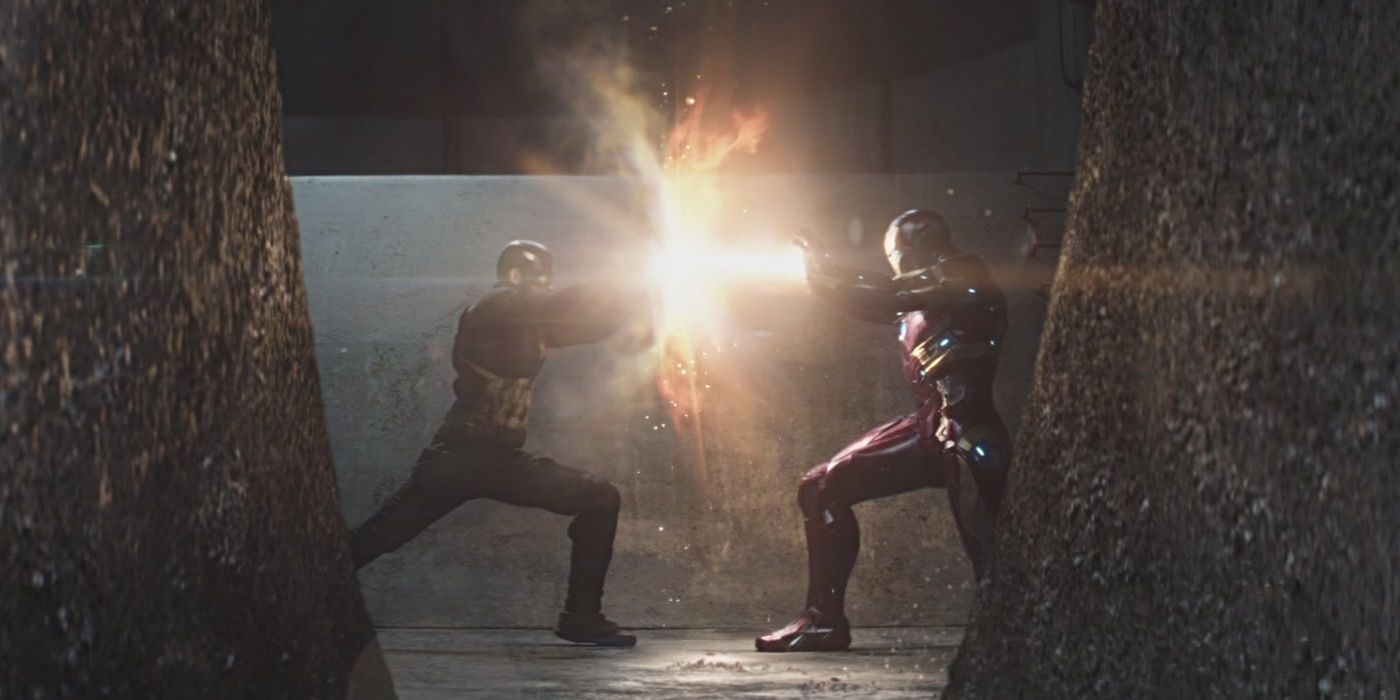
Much was made at the time how Captain America: Civil War was similar to Batman v Superman, from the macro - the shared universe is split in two as the major heroes duke it out - to the micro - the fights are dictated by characters' emotions for dead mothers. But what's so striking is that, when both movies landed on the May weekend, it was DC who balked, moving Dawn of Justice to a less competitive March. This was the moment where the MCU's scale became next-level, where former B-list characters were a bigger draw than the World's Finest.
Civil War uses that growth and development very much to its advantage. Threads established in as many as nine previous movies (Iron Man 1-3, Captain America 1-2, Avengers 1-2, Ant-Man and The Incredible Hulk) are brought together to tell a story that grapples with the real world applications of having superheroes leveling cities outside your window, and the more personal story of Bucky that's been simmering for the past two Cap films. And this is a Captain America film first and foremost; Steve Rogers' responsibilities and guilts power the narrative and resolve the identity exploration of the previous films by having him desert the Avengers and the shield, yet remain the hero. Not that the solo movie arc means the Russos don't elevate every other character; Tony Stark's arc is extended, Hawkeye gets more development than in Age of Ultron, Ant-Man gets the showcase he deserved, and in Black Panther and Spider-Man two major heroes are introduced fully formed.
That said, it would be a lie to say some of the shine hasn't worn off Captain America: Civil War over the past few years, inevitable for such a sprawling tale. The Sokovia Accords are really a plot device and characters - Black Widow especially - choose sides based on narrative requirements, not their past, which means the film doesn't have as much to say as it thinks. But considering the scale Marvel was now working on, in stark contrast to the twin movie, that didn't really matter.
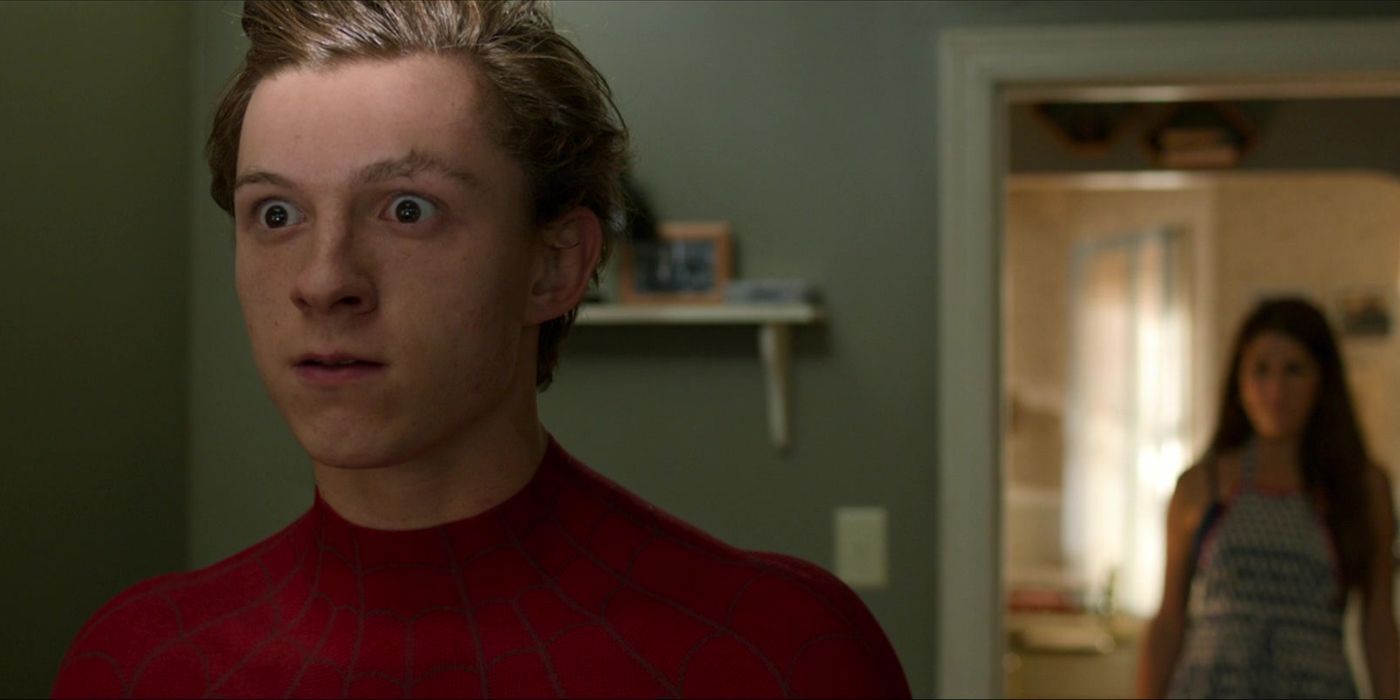
After the second act of Spider-Man: Homecoming, it feels like Peter Parker has finally found some balance in life. His superheroics are taking a backseat and his life is together to the point he's taking his senior year crush to the dance. He rings her doorbell... and then Vulture opens the door, crashing both sides of his life together. The greatest twist ever in a superhero film - the villain was the love interest's father is a well-worn trope, but Homecoming buries it deep - that this happens purely on a character level, devoid of MCU or Spider-Man franchise context, is a shining example of just how well balanced Jon Watts' film is.
Rebooting Spider-Man for the third time that was at once faithful and new was a tough order. Marvel decided to strip the character of what had been overdone before and built him up from what was left. This is a version of Spidey rooted most in the early Stan Lee and Steve Ditko comics, but transplanted to Generation Z to enable a modern-day deconstruction akin to what Phase 1 did for Steve Rogers and Tony Stark. And Homecoming certainly nails his balance of youthful, neighborhood vigilantism with the instantly relatable troubles of leading a normal teenage life, thanks to Tom Holland's semi-awkward performance and a heavy dose of John Hughes referencing.
Eight years later aside (likely a result of needing Liz to be young enough to draw a picture of theAvengers in crayon), the movie's placement in MCU canon is elegant as well. Tony Stark is a fitting father figure, the cameos are worth your patience, and, best of all, Peter (and Ned's) wide-eyed passion brings "heroes outside your window" to life.
That all these three aspects - movie, character, universe - work so well results in one of the most satisfying Marvel movies, and one that has already aged better than its contemporaries (even if it doesn't quite reach the heights of Sam Raimi's Spider-Man 2).
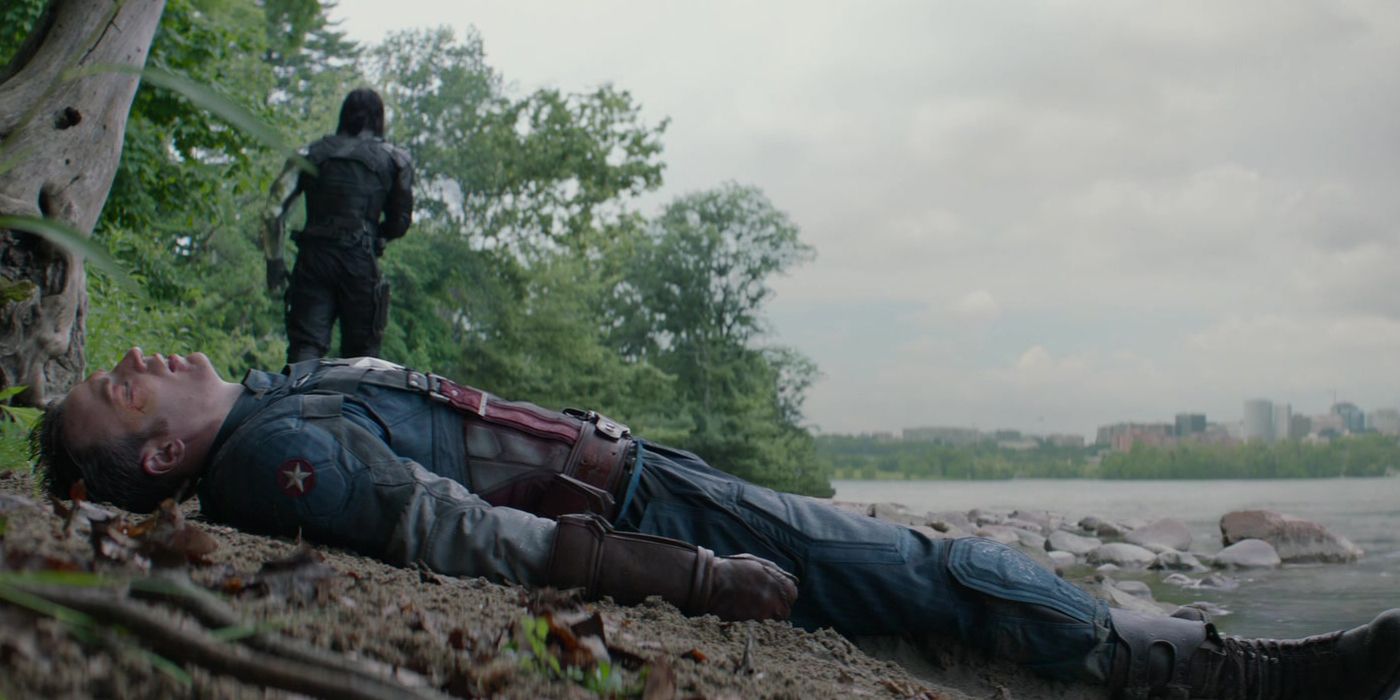
Some of what makes Captain America: The Winter Soldier so effective was a complete accident; its story of modern espionage and invasion of freedoms lines up so well with the Edward Snowden NSA leaks that it's amazing the film was in production before his story broke. However, that real-world caveat does nothing to take away from what the movie does with the character of Steve Rogers. If The First Avenger was about divorcing Captain America's patriotic values from his propaganda origins, its modern-day follow-up is how you apply that to a morally-ambiguous, ostensibly peace-time landscape. This is there from the discovery his government bosses are corrupted to that the big villain is his former best friend.
This was the Russos brother's first entry in the MCU and much of what made their subsequent team-ups so epic yet satisfying is rooted here. The action has proper heft - bullets wound and falls hurt - and there's a deft balance of character and story, with every single player getting a proper arc that has a tangible impact on the plot; astounding as juggling two-dozen heroes in Avengers: Infinity War is, here there are still more than 10 essential characters interlocking. The core of it, though, is that Steve-Bucky relationship: the Winter Soldier twist is clearly signposted (and spoiled by anybody who was redirected to Bucky's Wikipedia page pre-release) but that's all effective setup for an emotional climax.
The weakest part about The Winter Soldier as an MCU film can hardly be blamed on the movie itself: its consequences are mostly meaningless. The Hydra-is-S.H.I.E.L.D. twist should have been seismic, yet Avengers: Age of Ultron not only mops up the fallout before the opening title but it has Nick Fury once again flying a helicarrier. In that regard, it highlights what a great Marvel movie should do - be as good as you can on your own.
from ScreenRant - Feed https://ift.tt/2O4vwPT

No comments: